Nino Schurter's Scott Spark 700 RC with SRAM Eagle
Insight from the man himself on his 9.79kg race rig
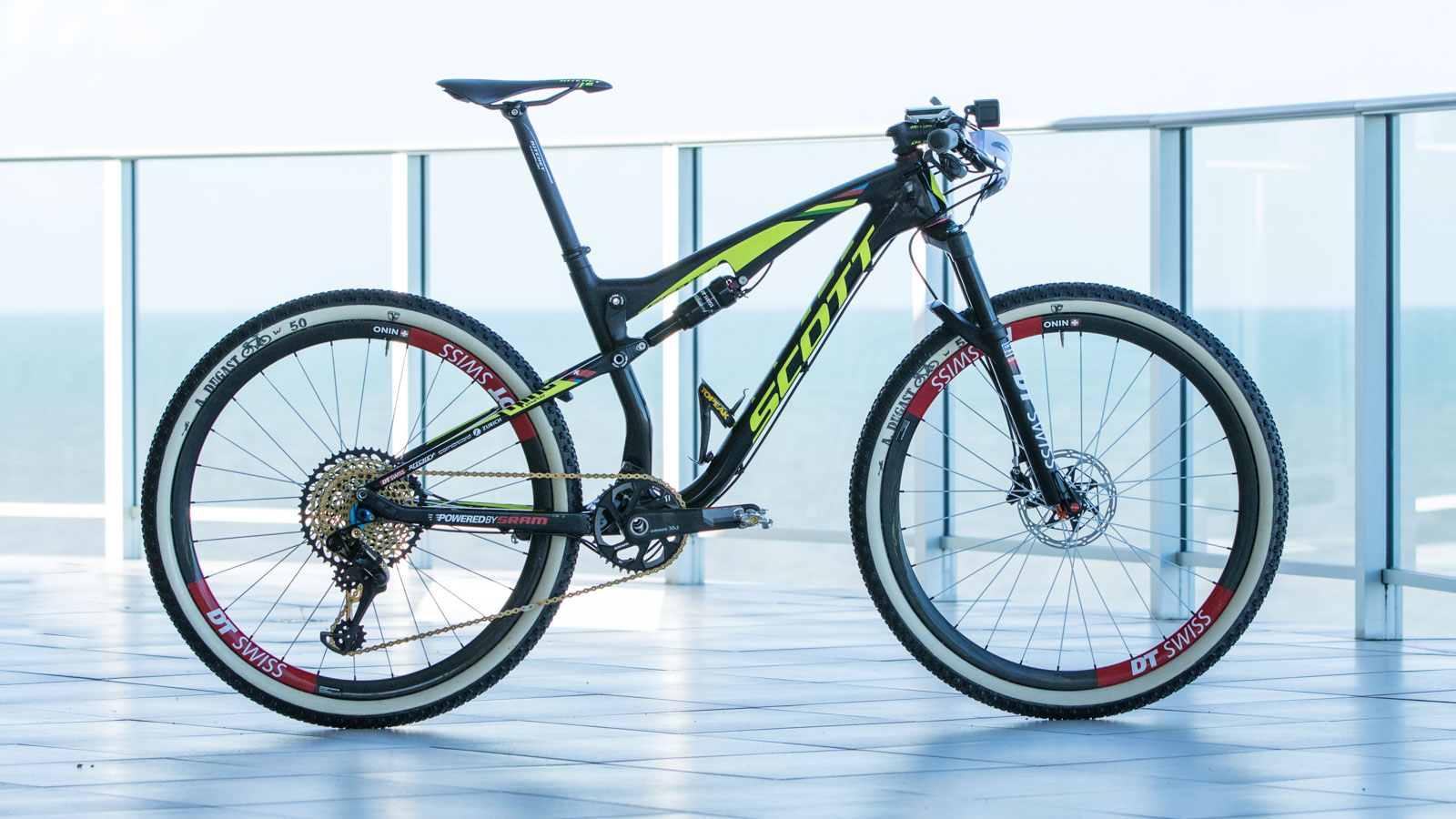
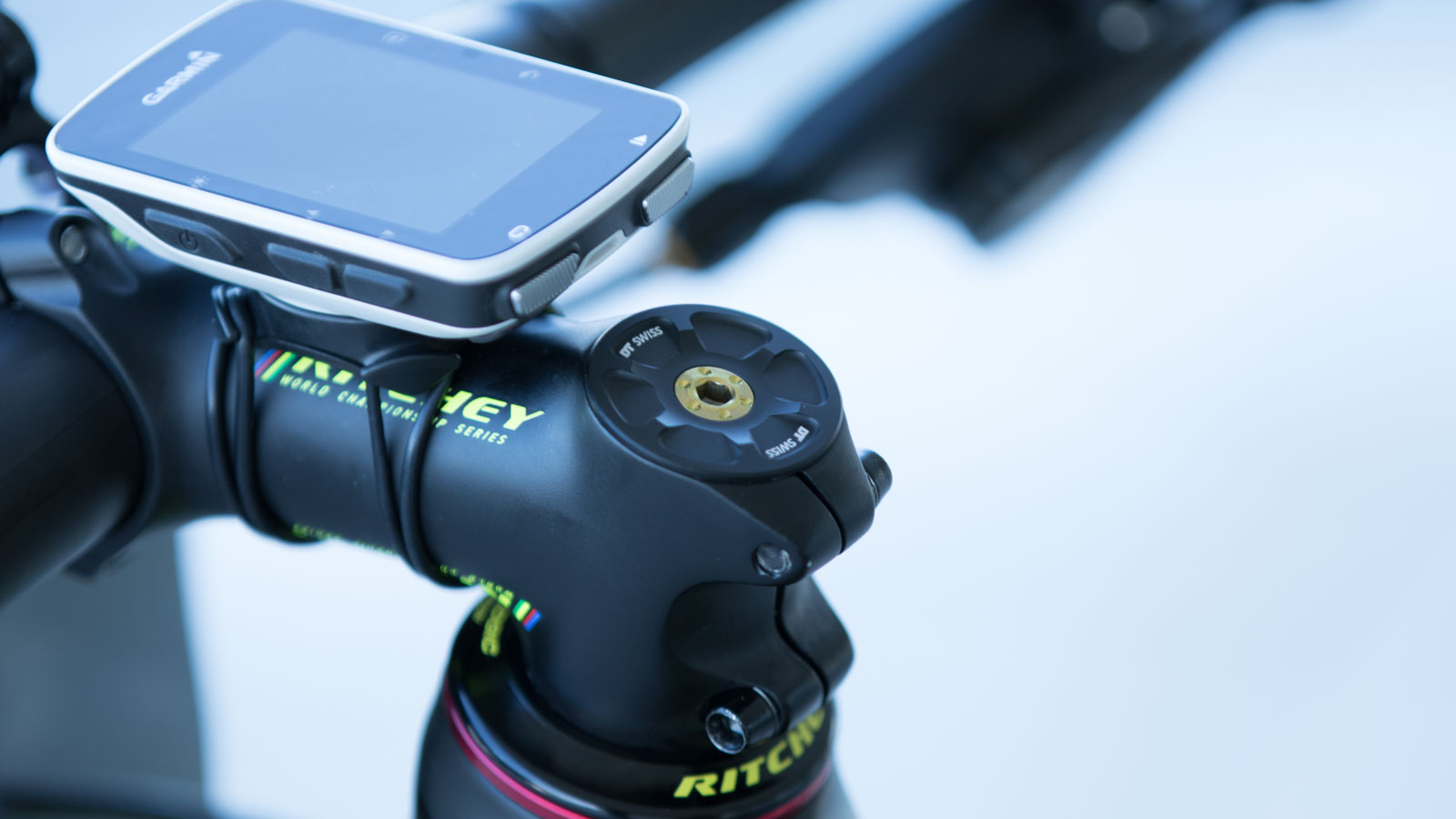
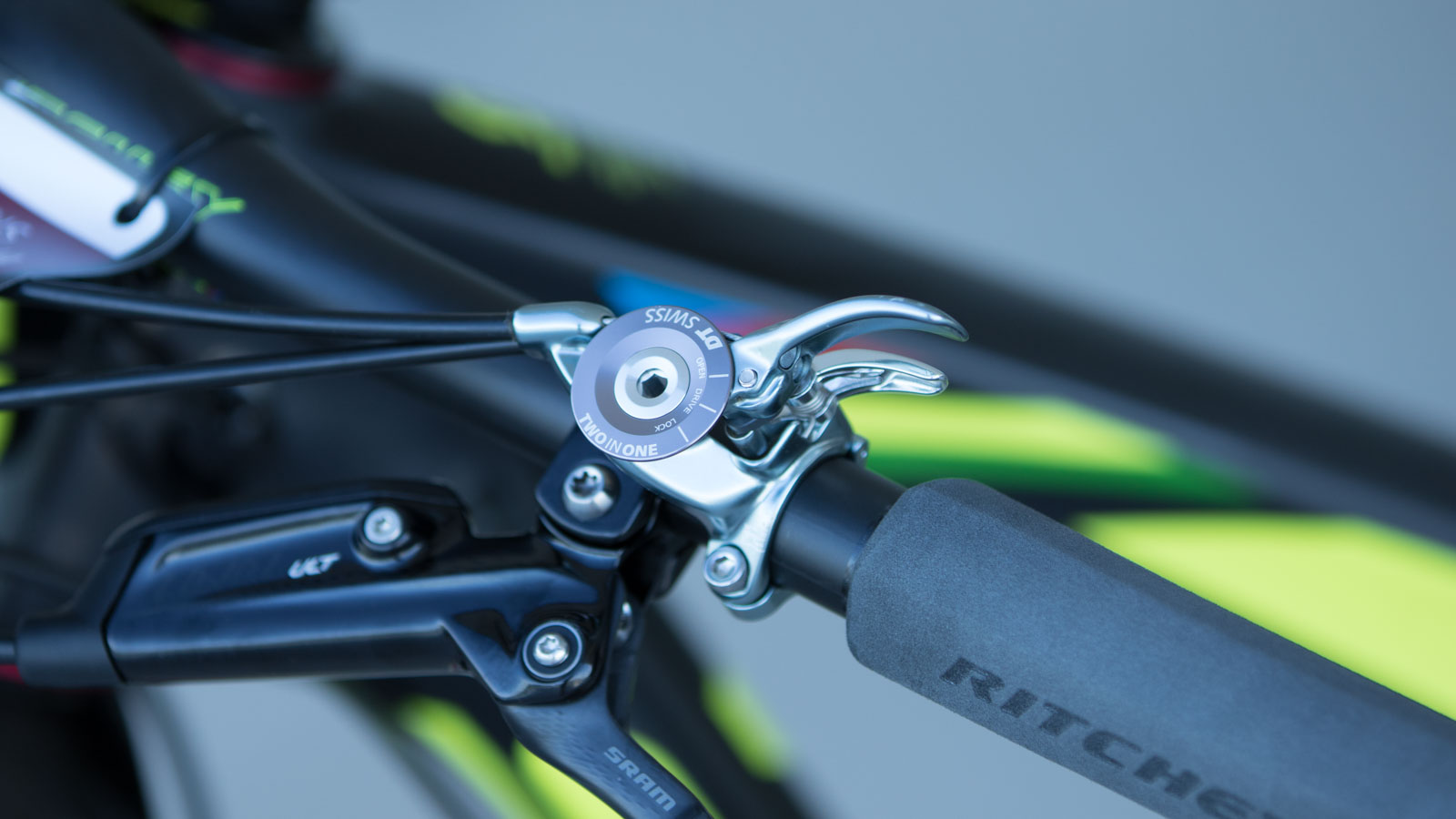
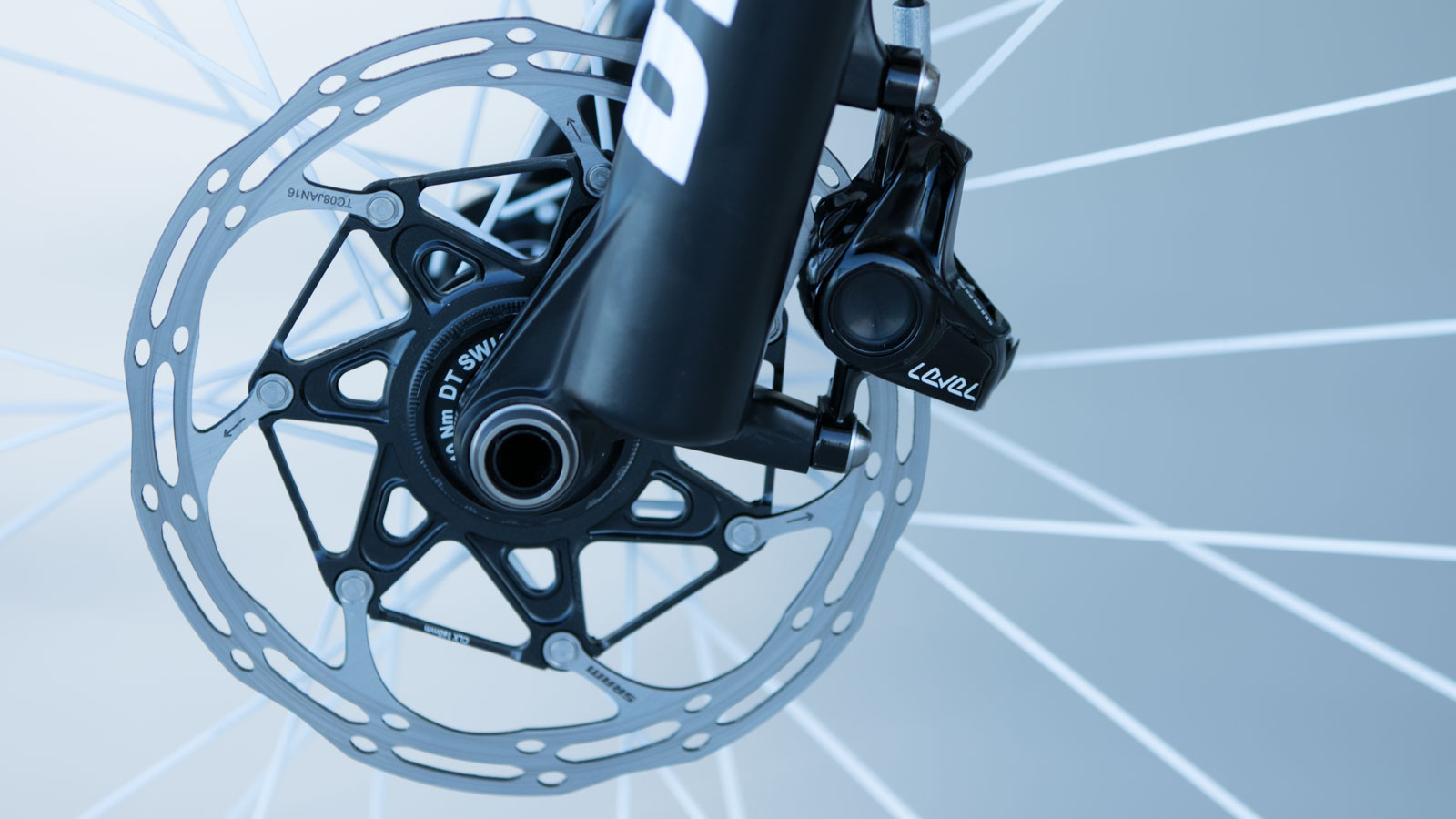
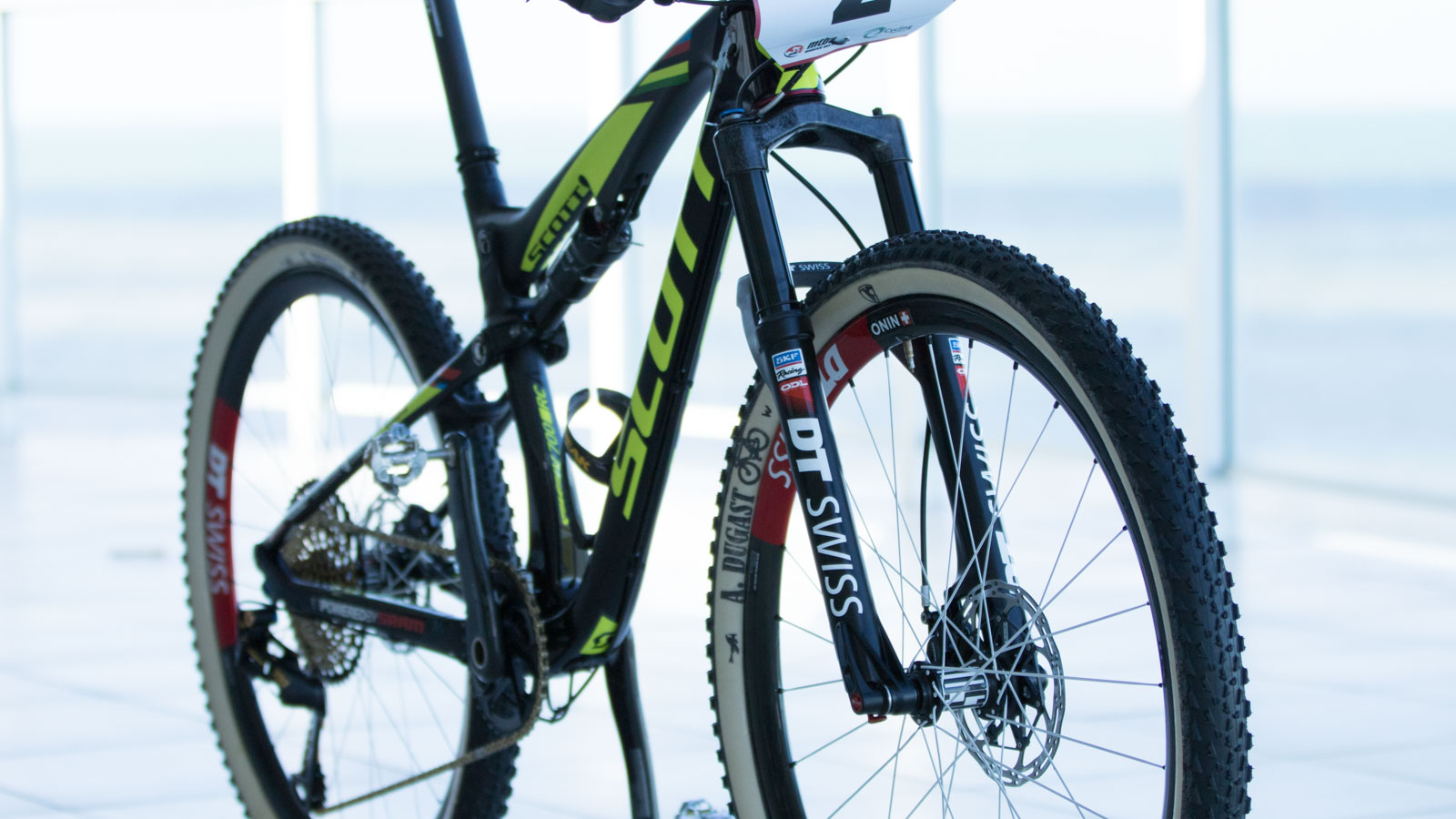
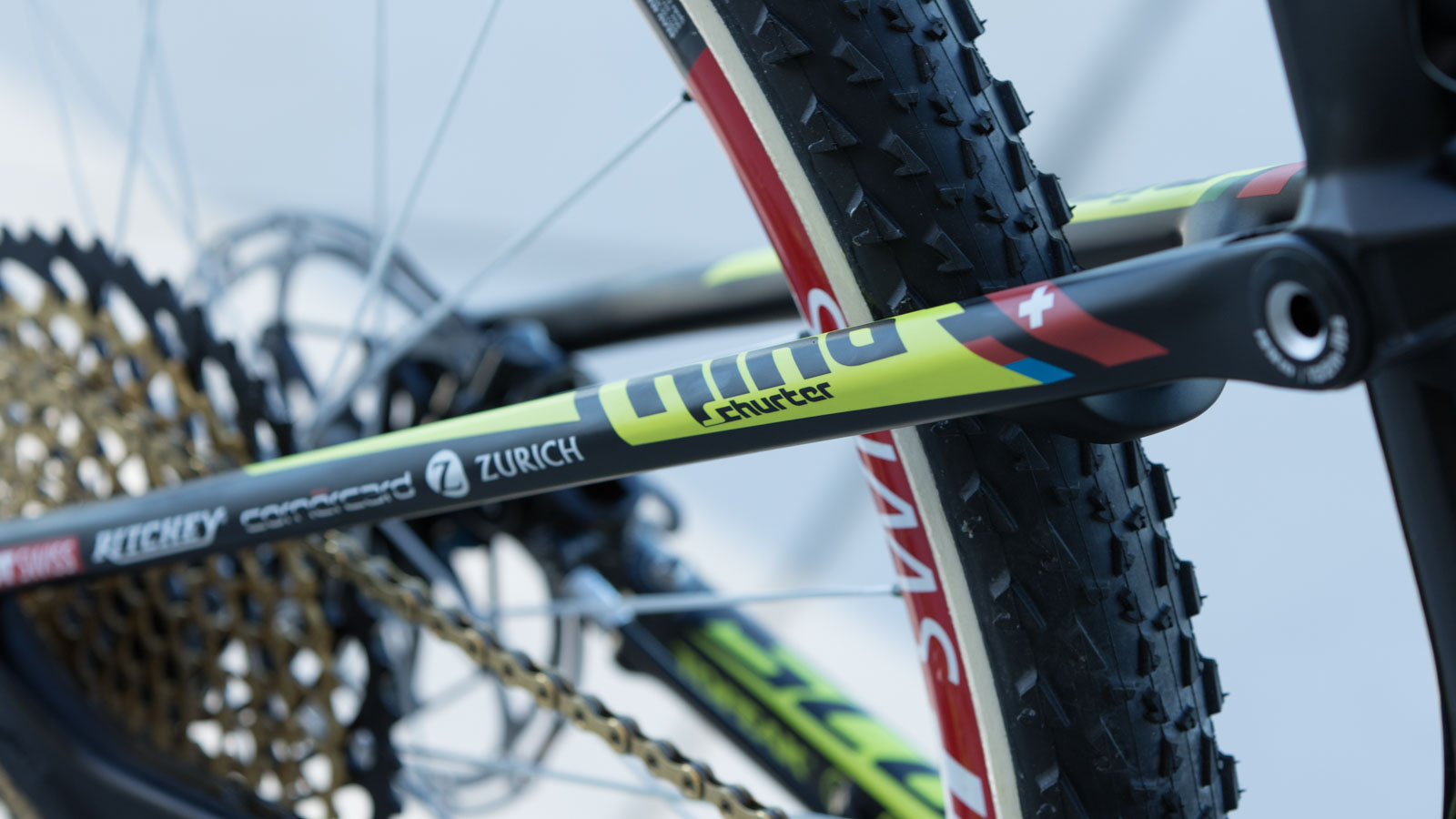
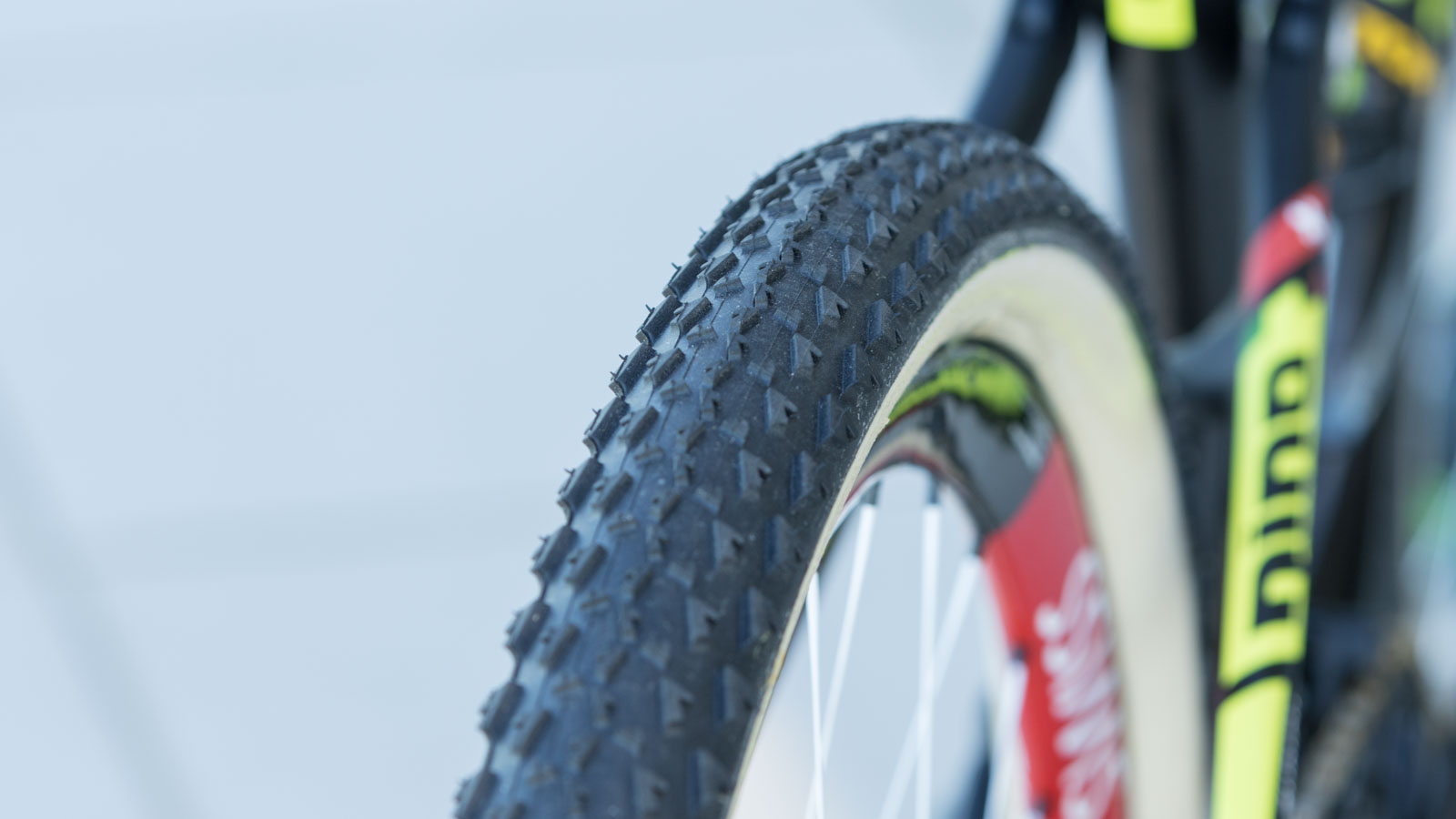
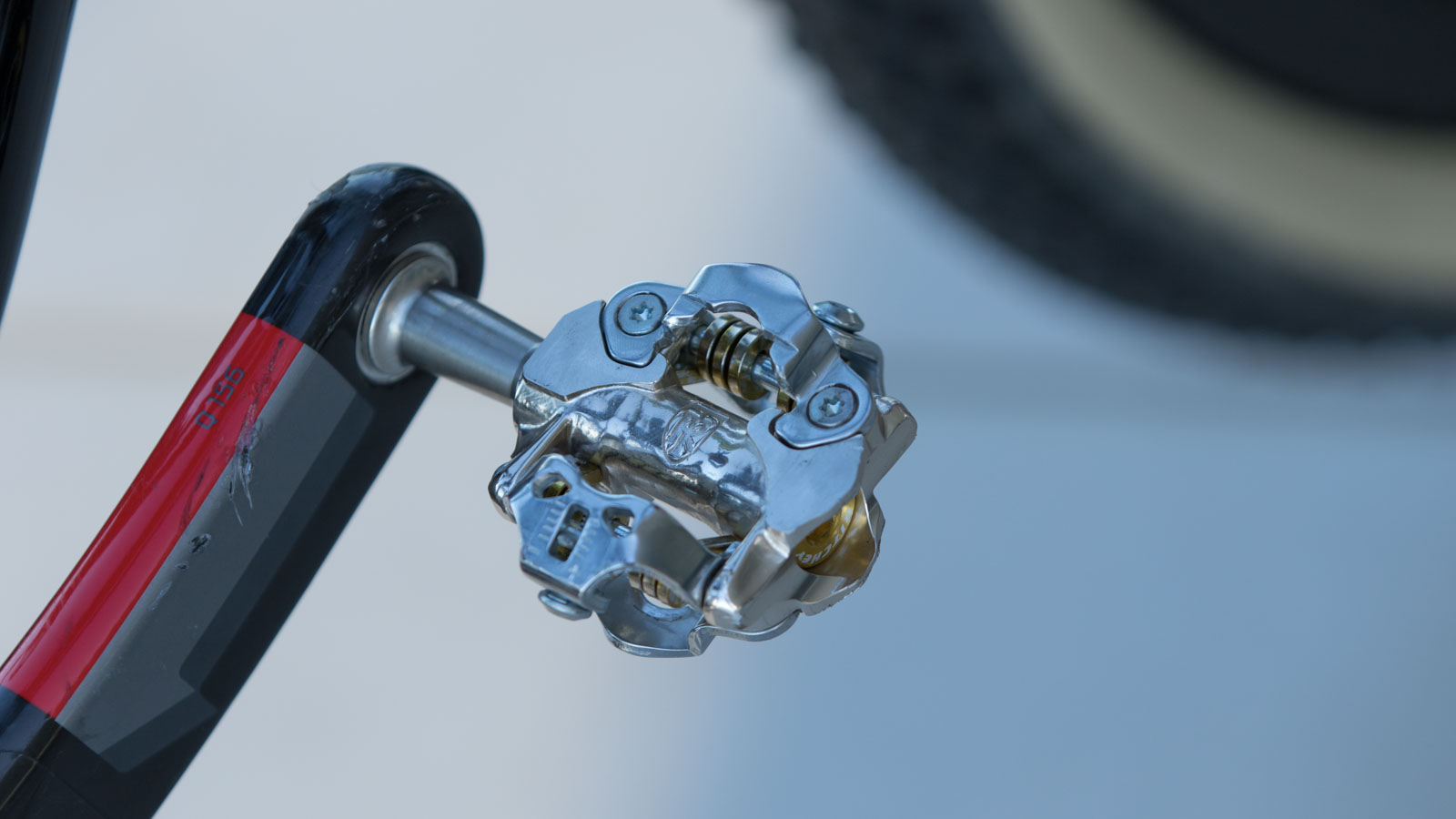
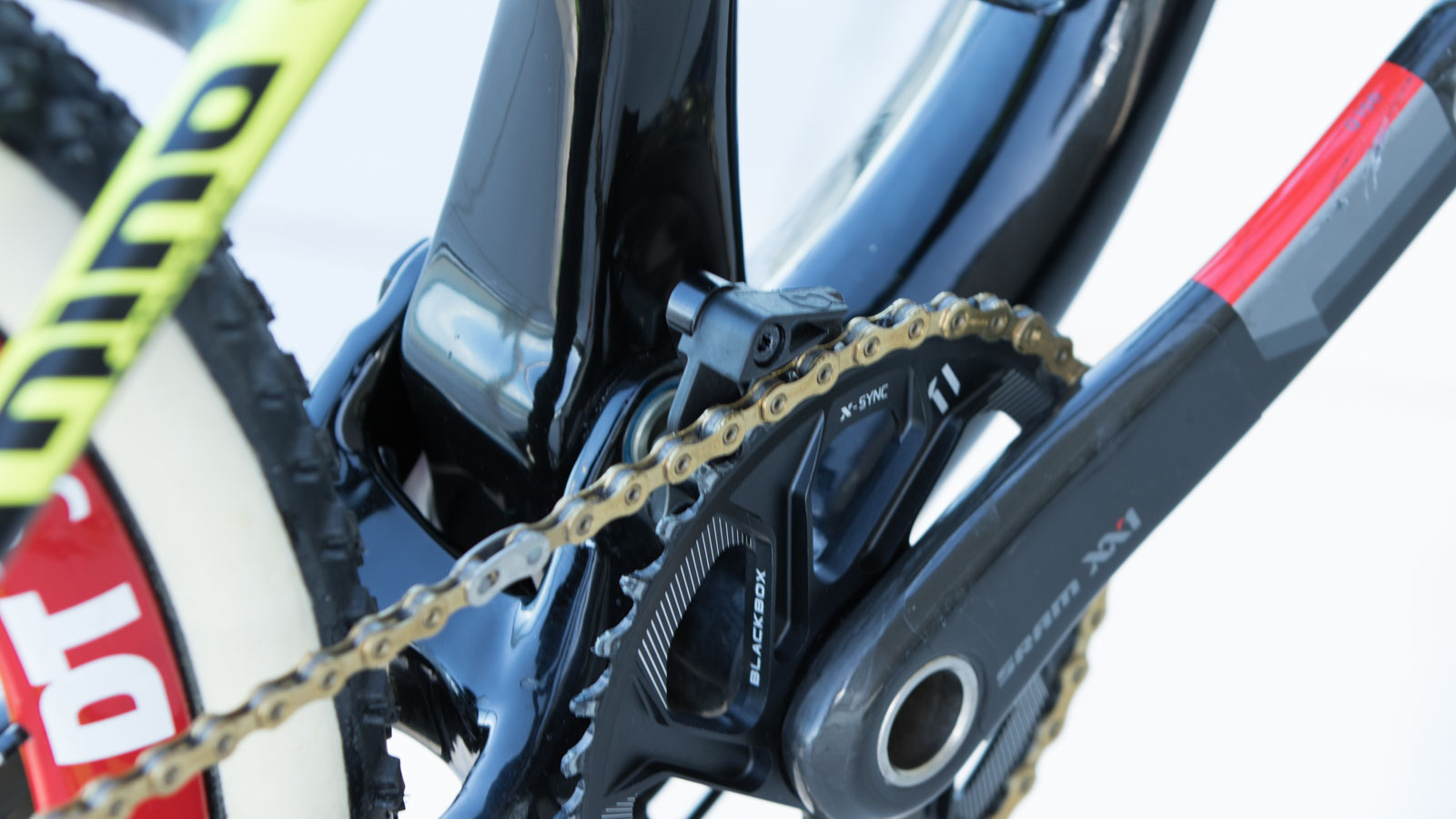
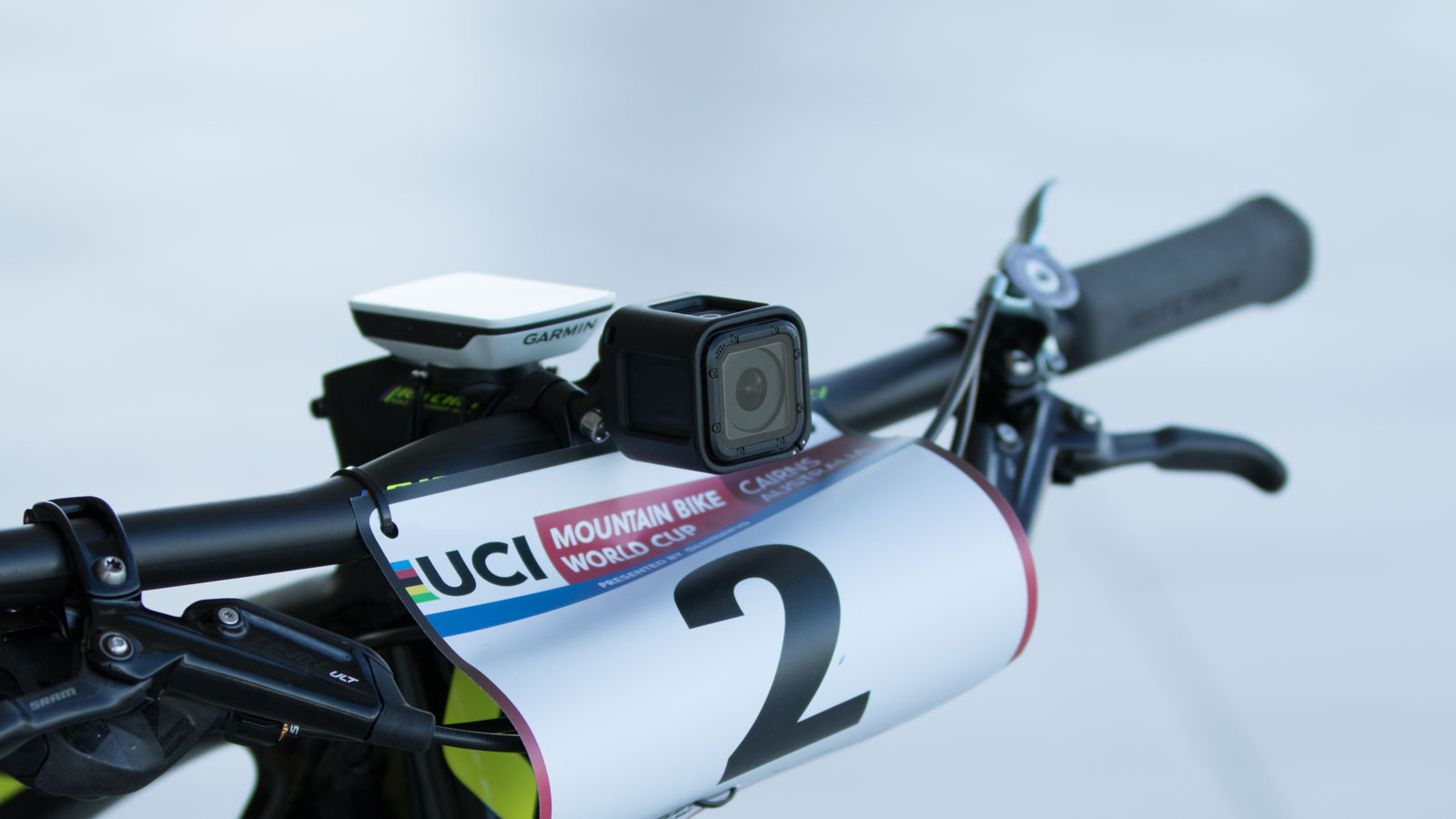
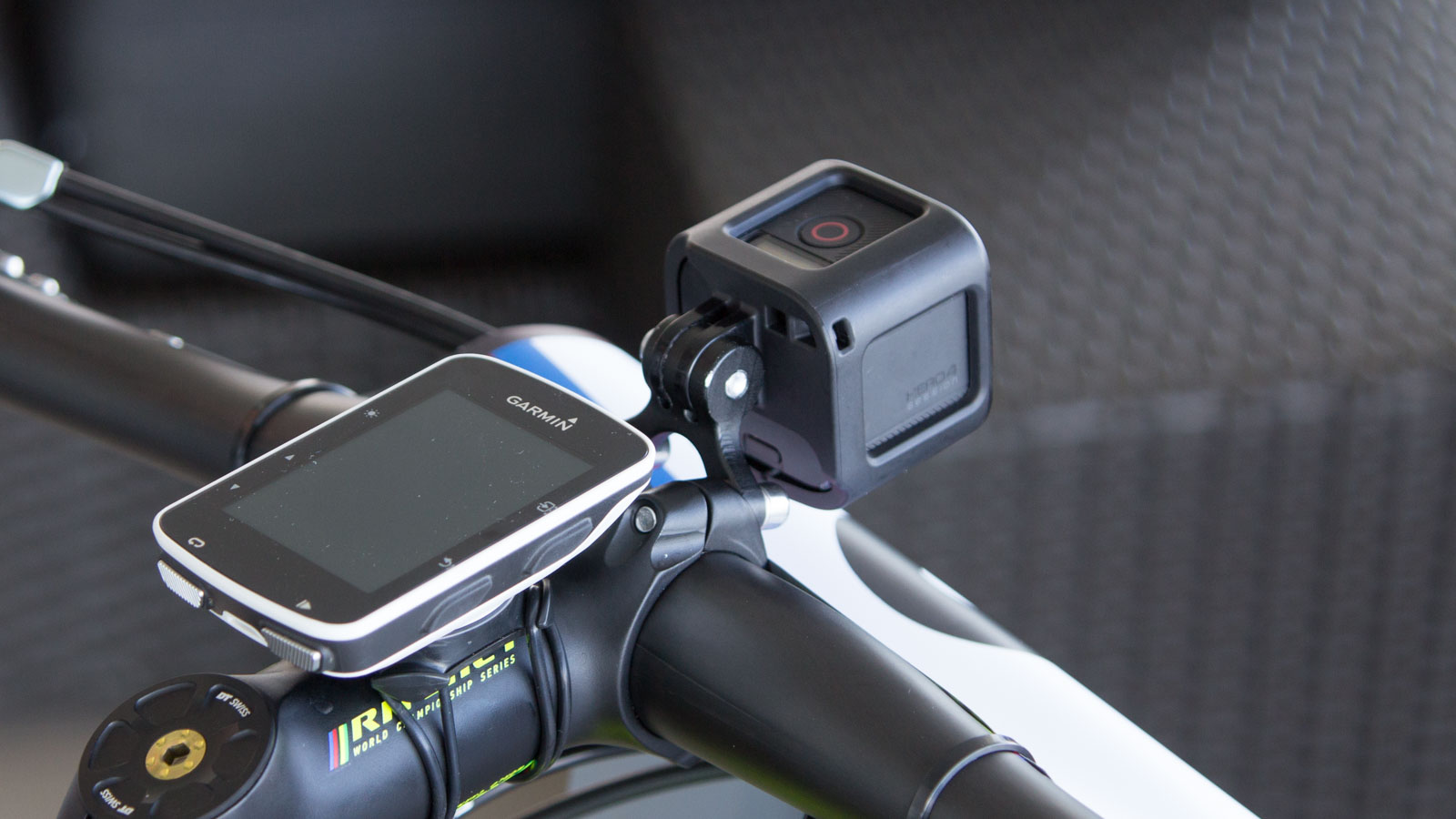
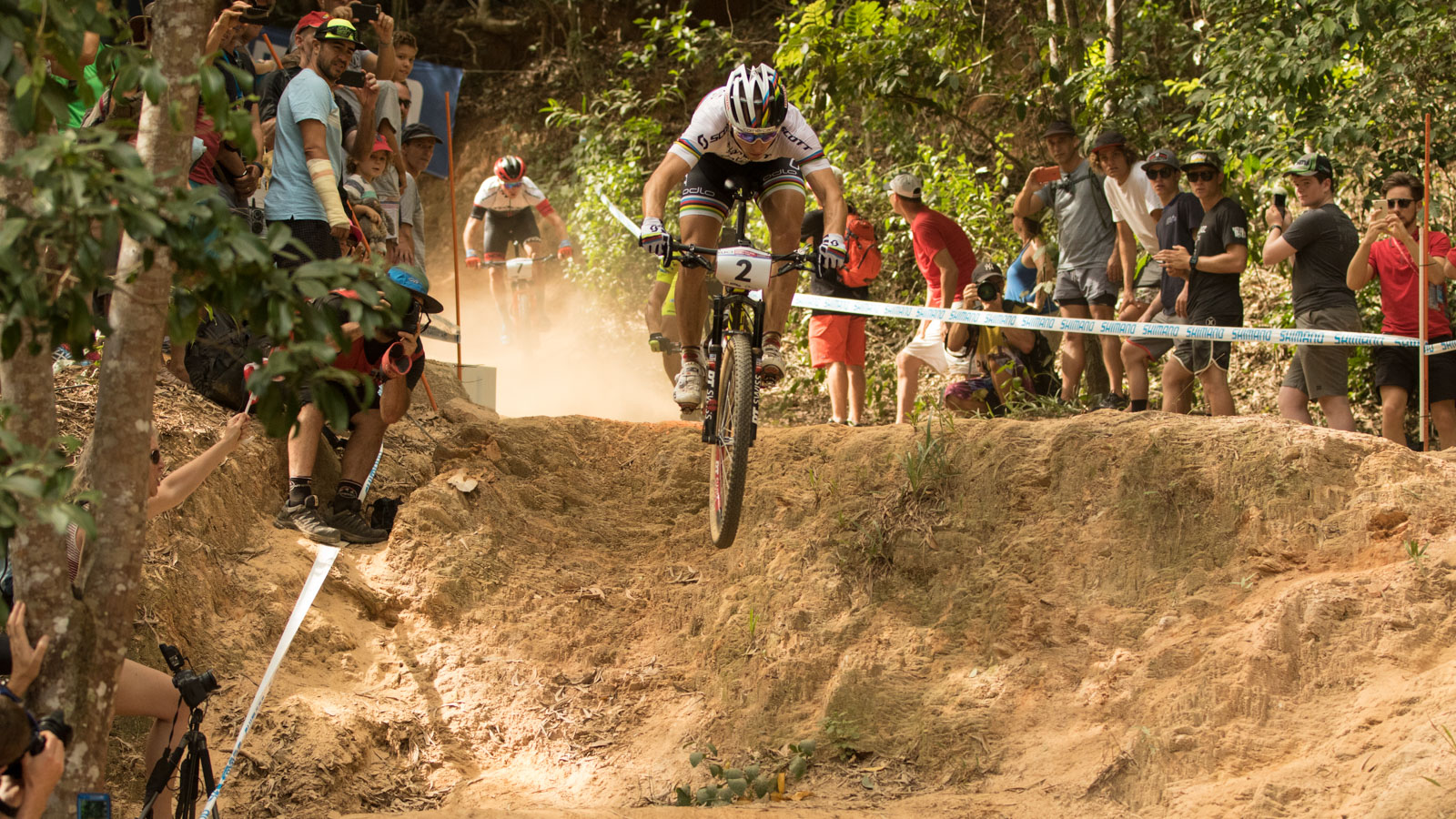
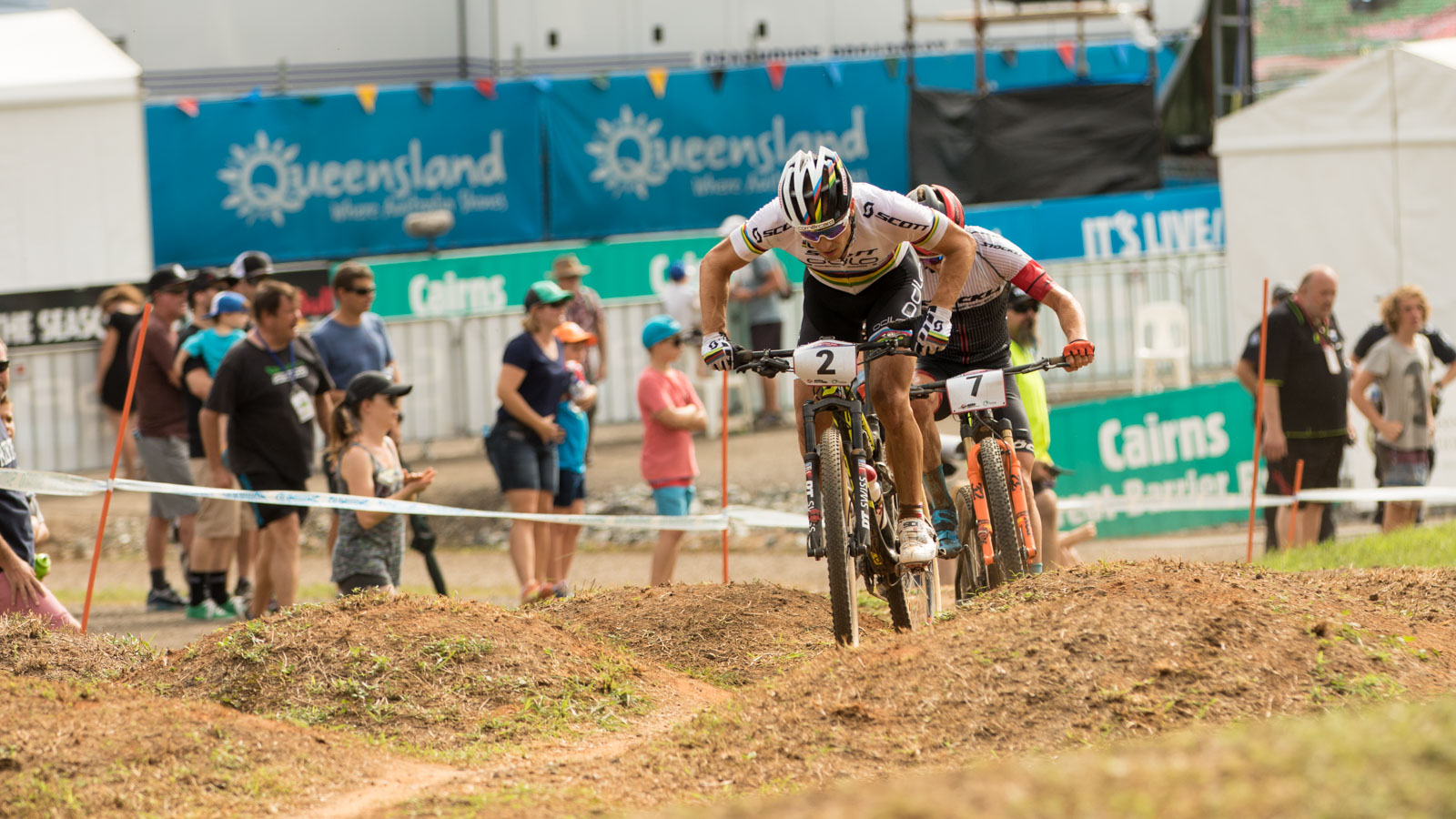
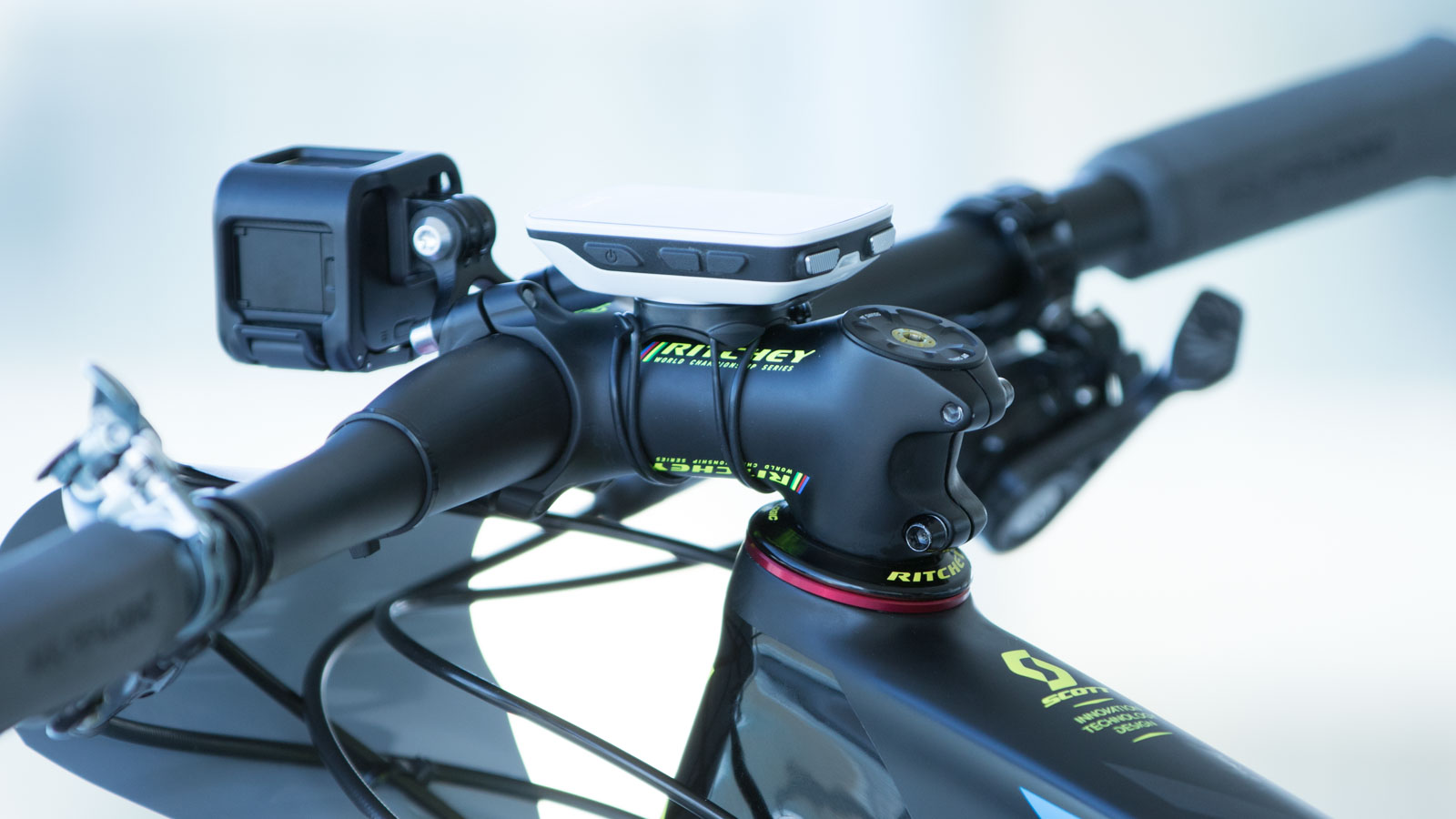
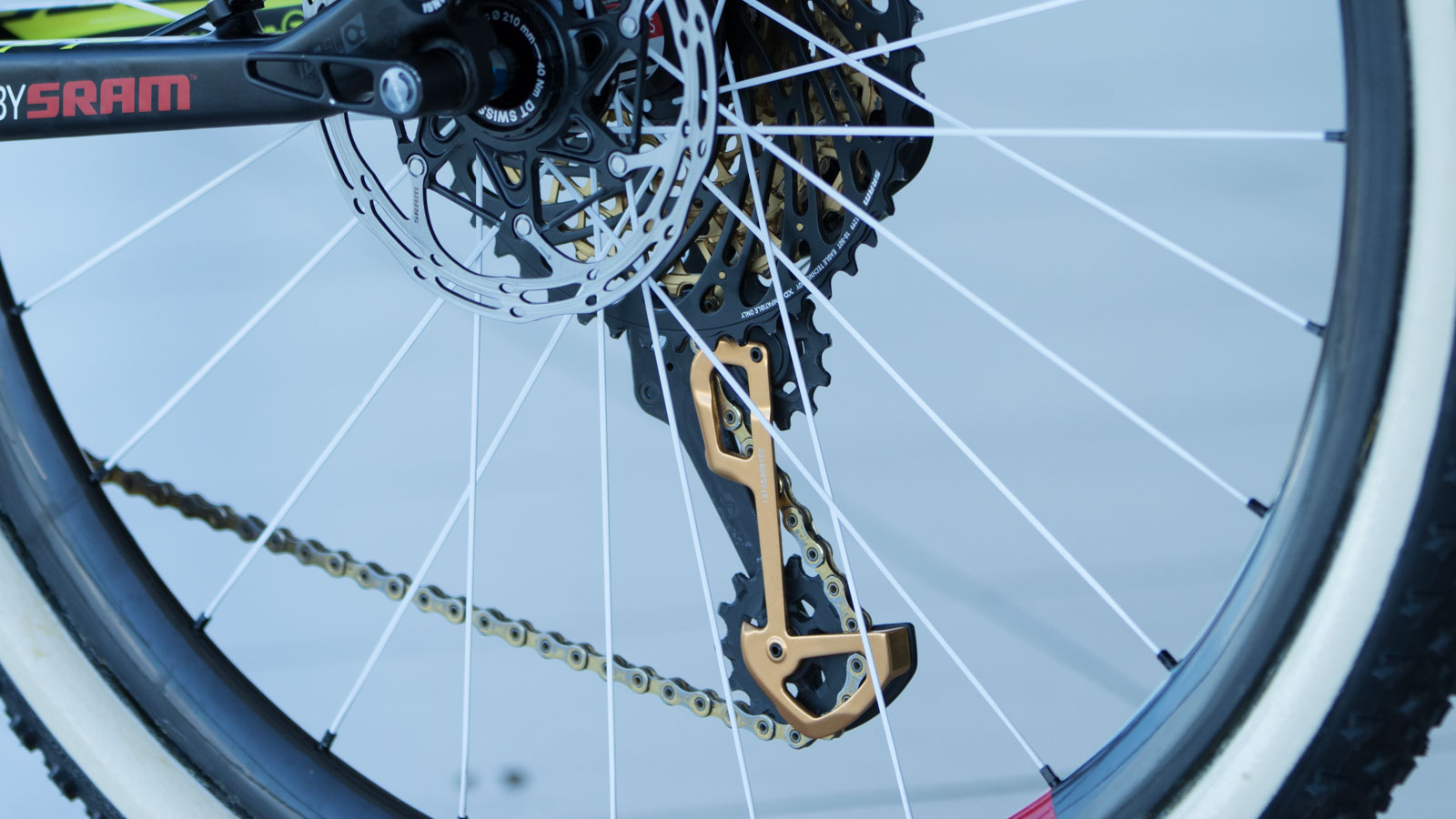
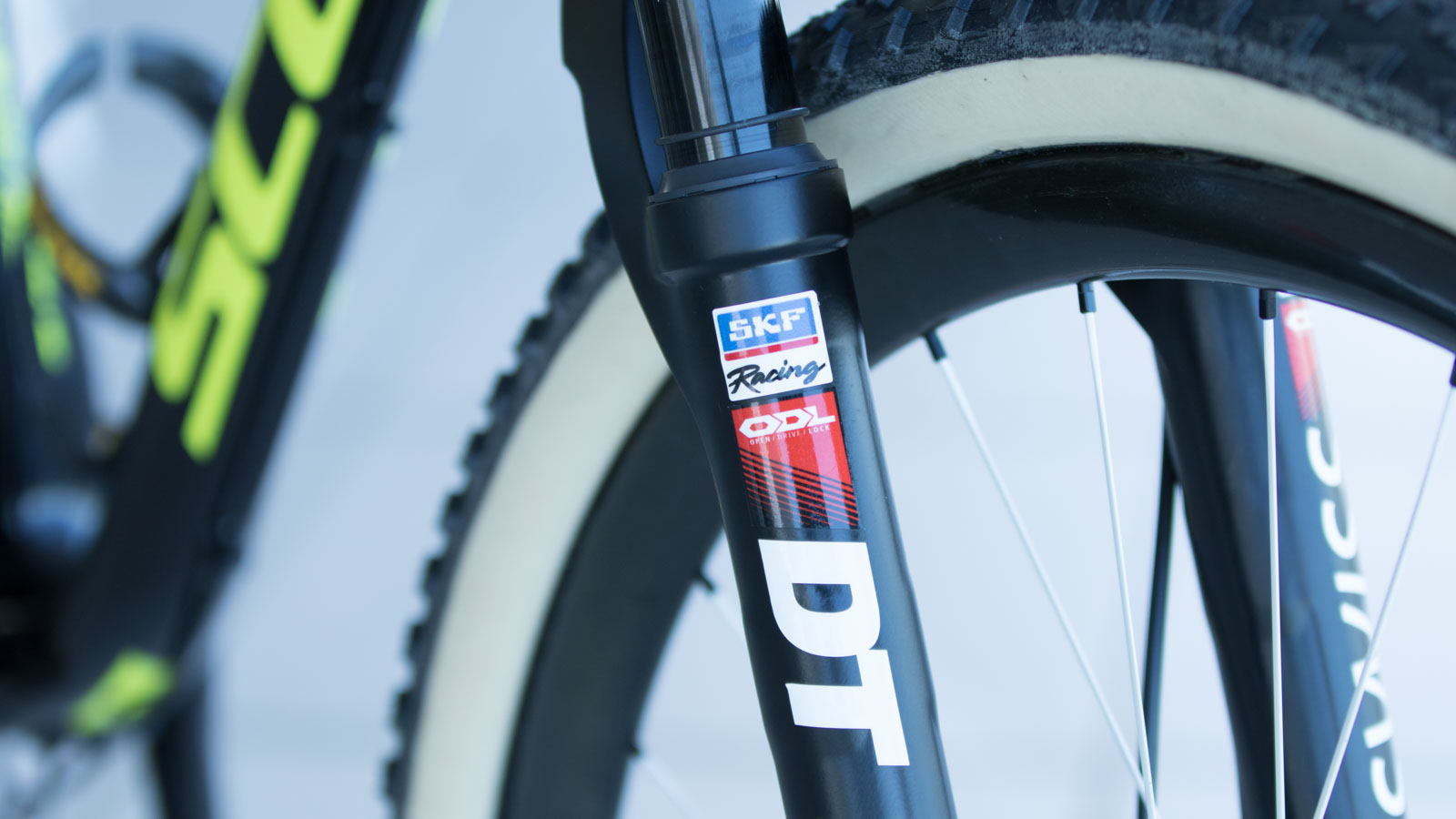
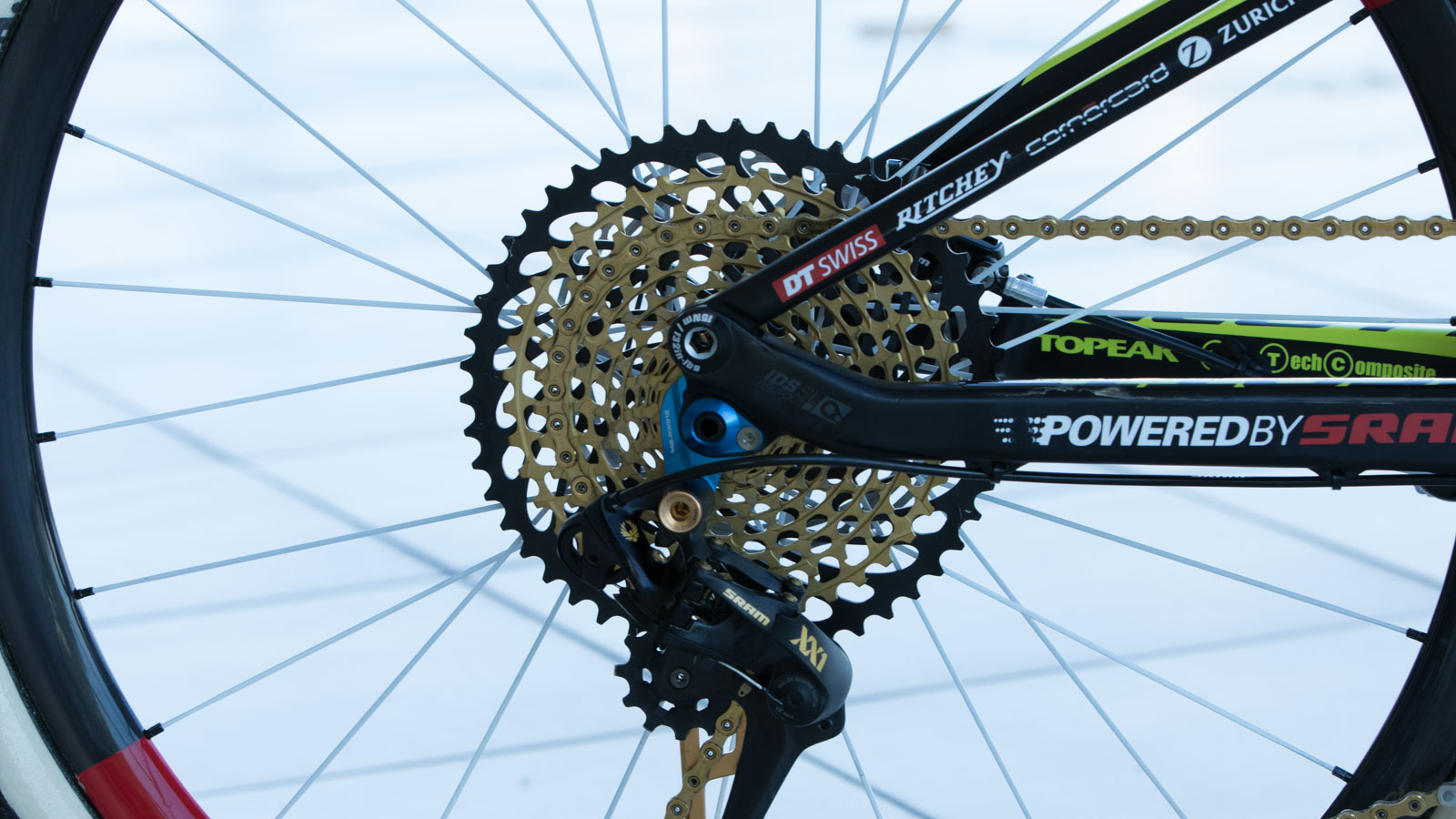
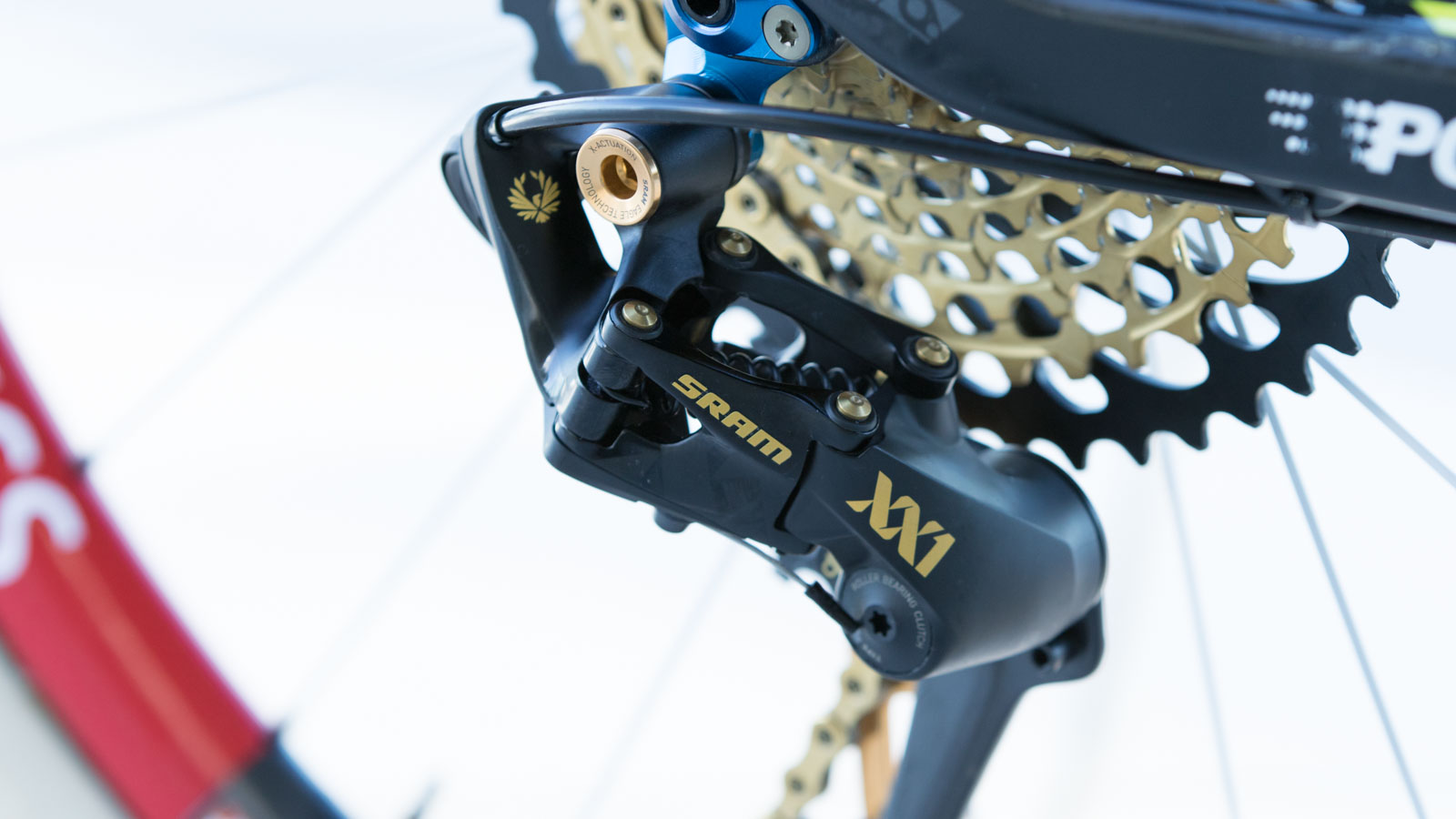
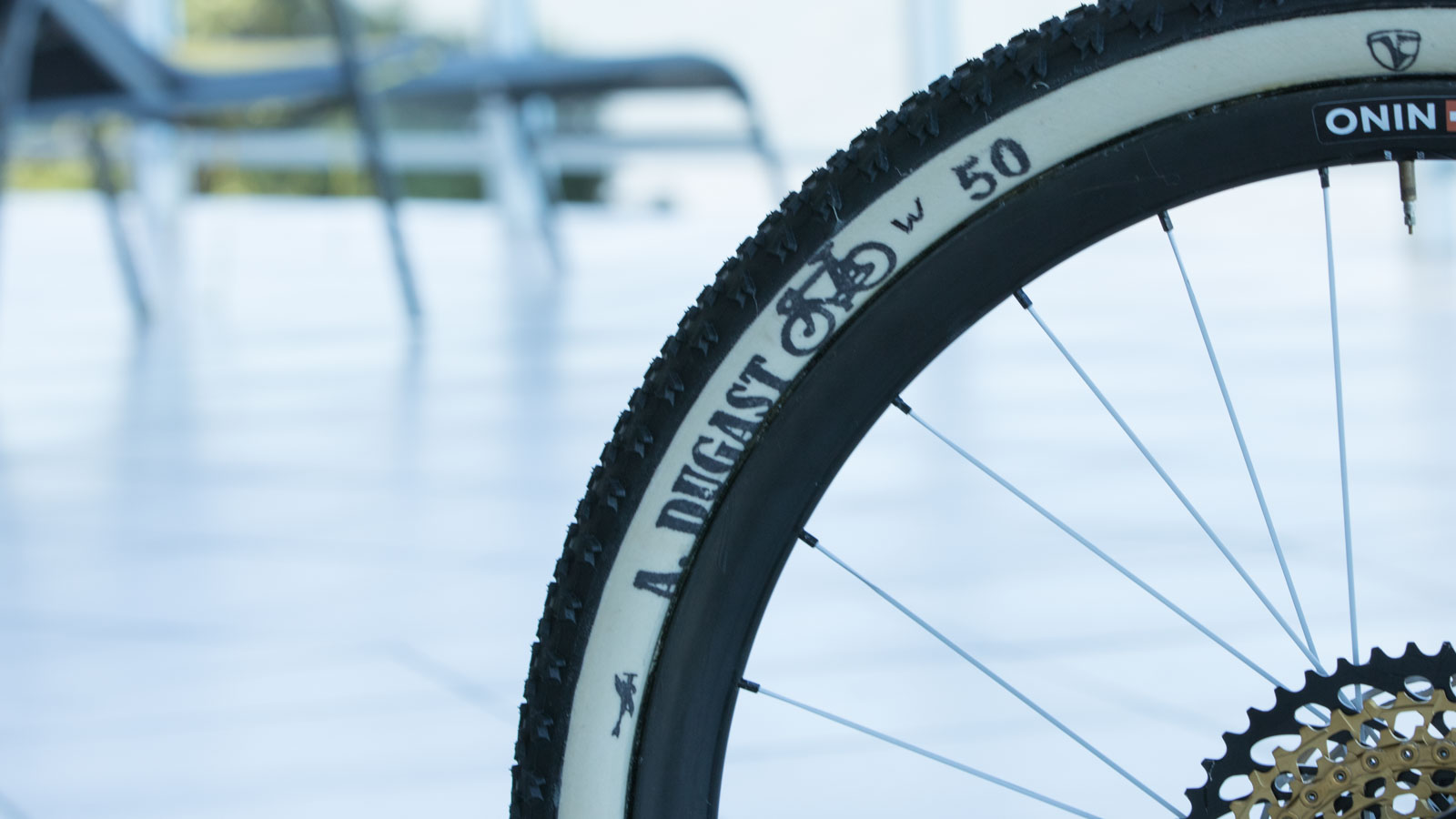
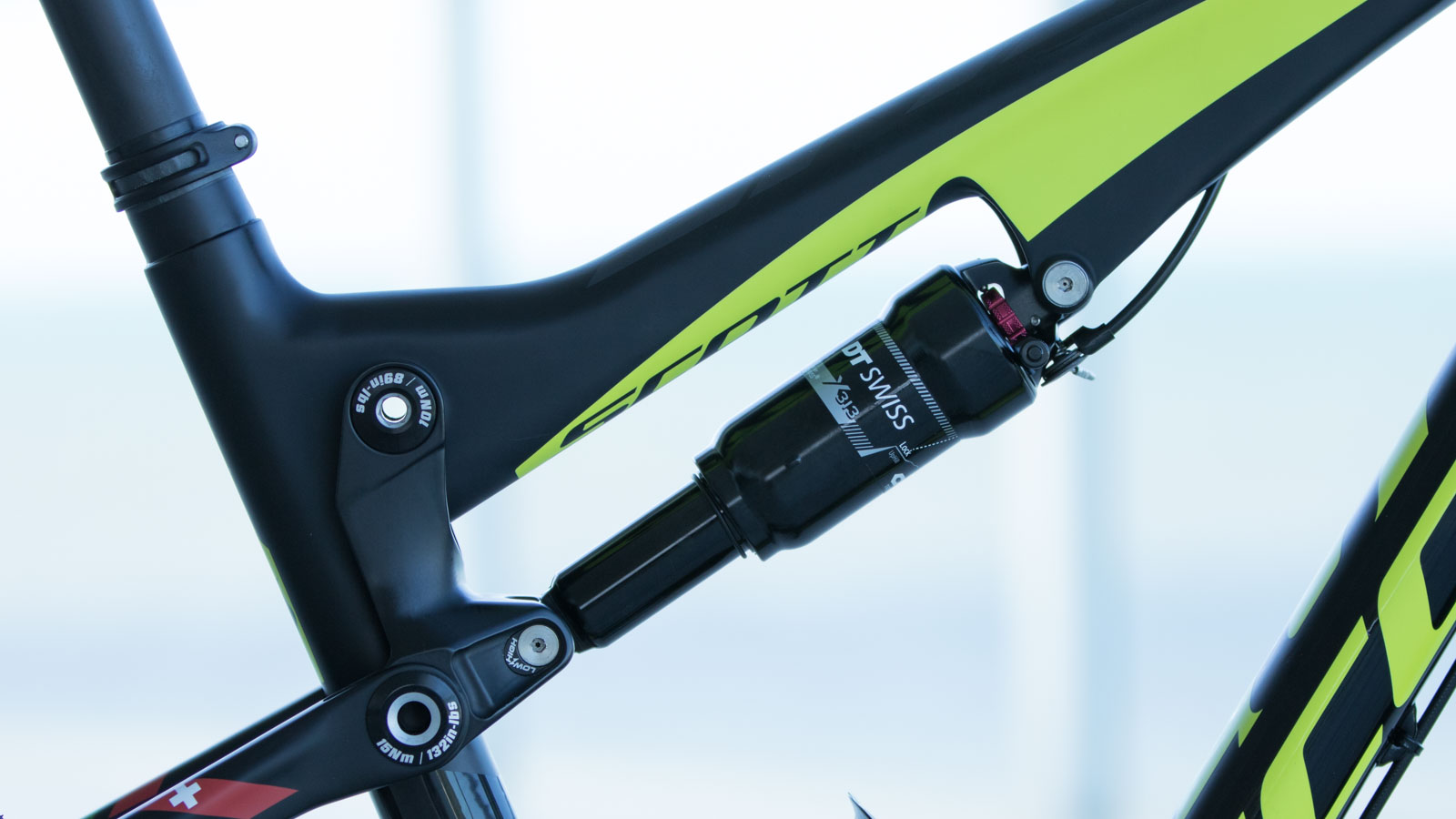
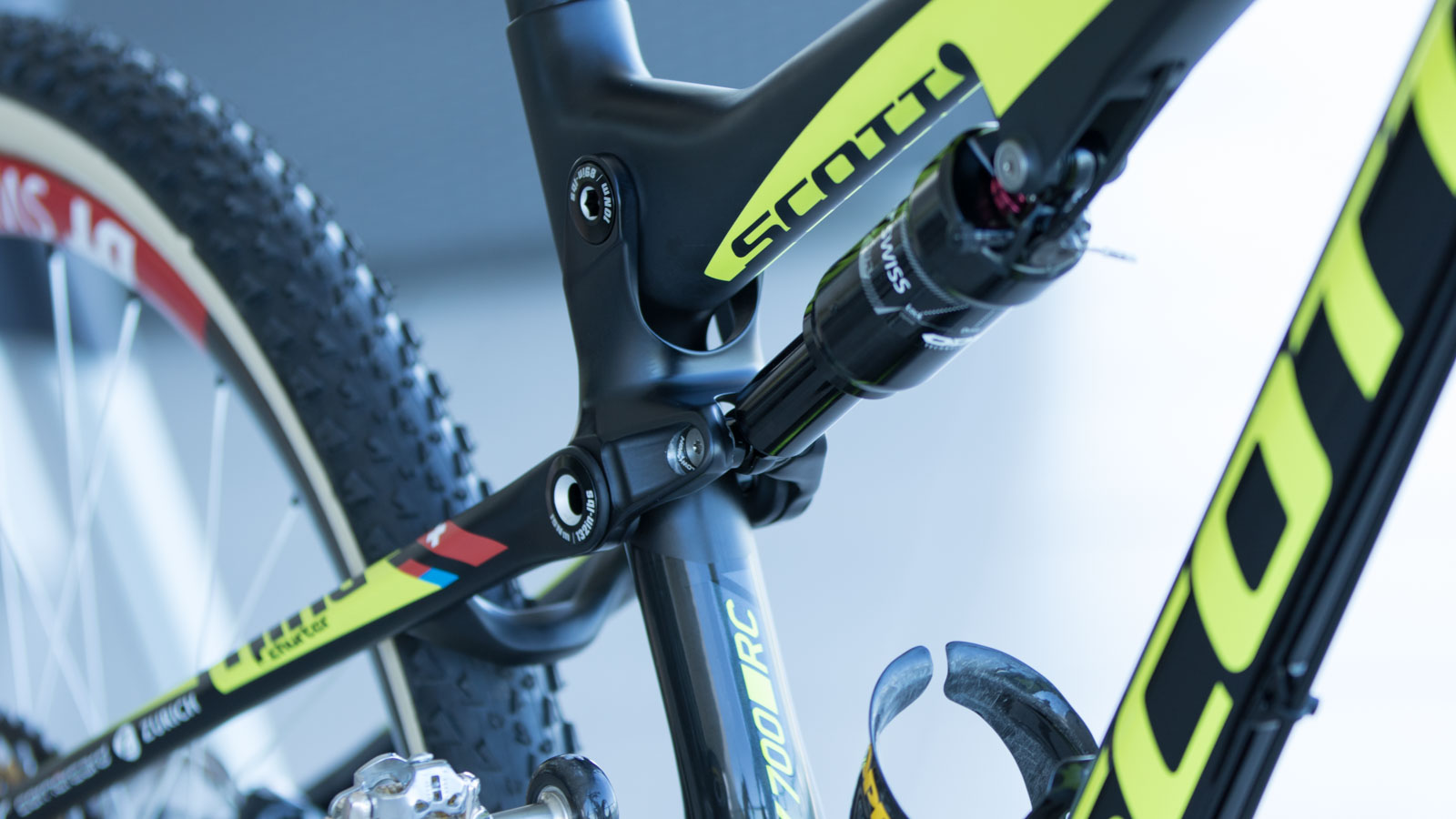
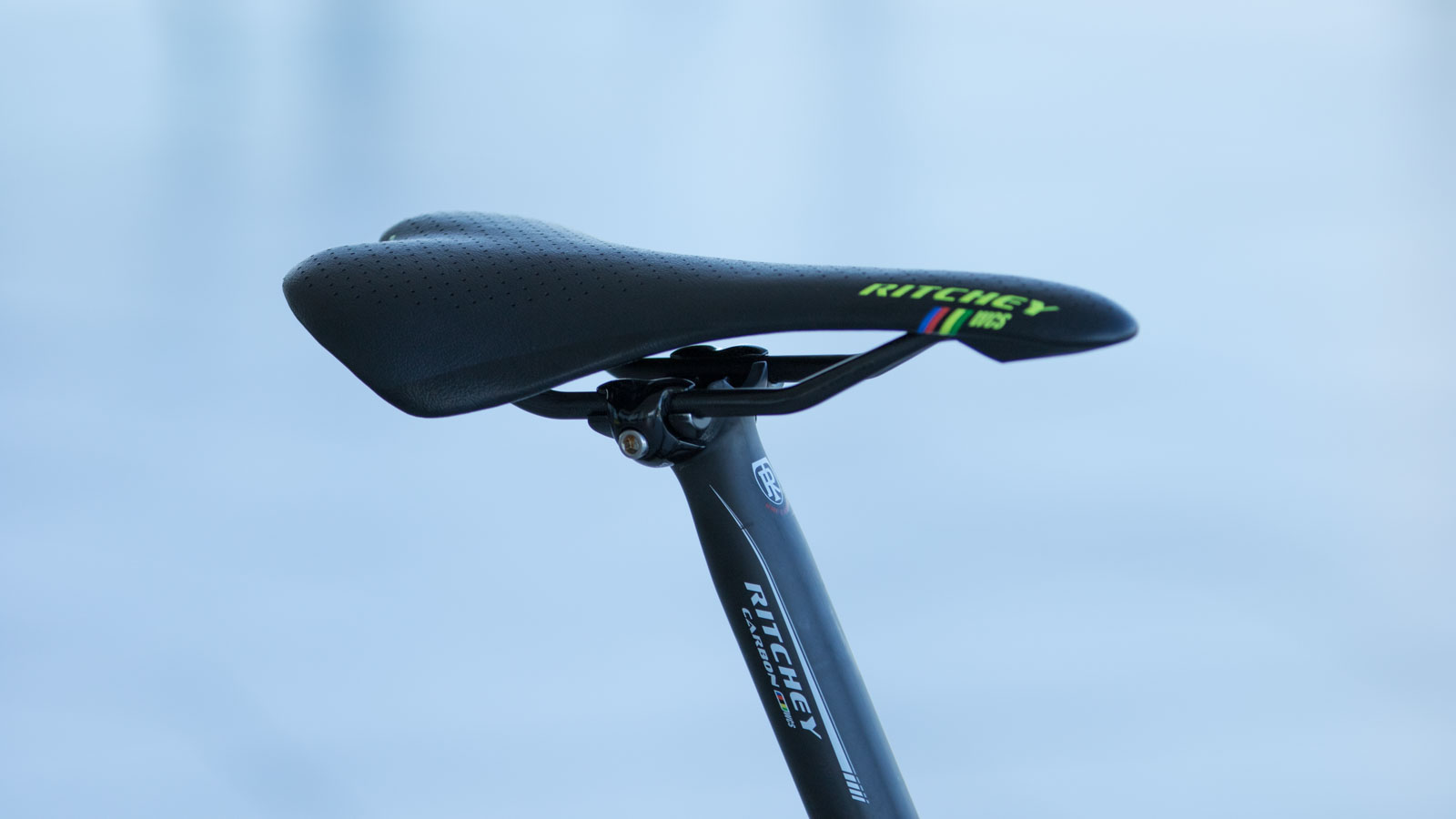
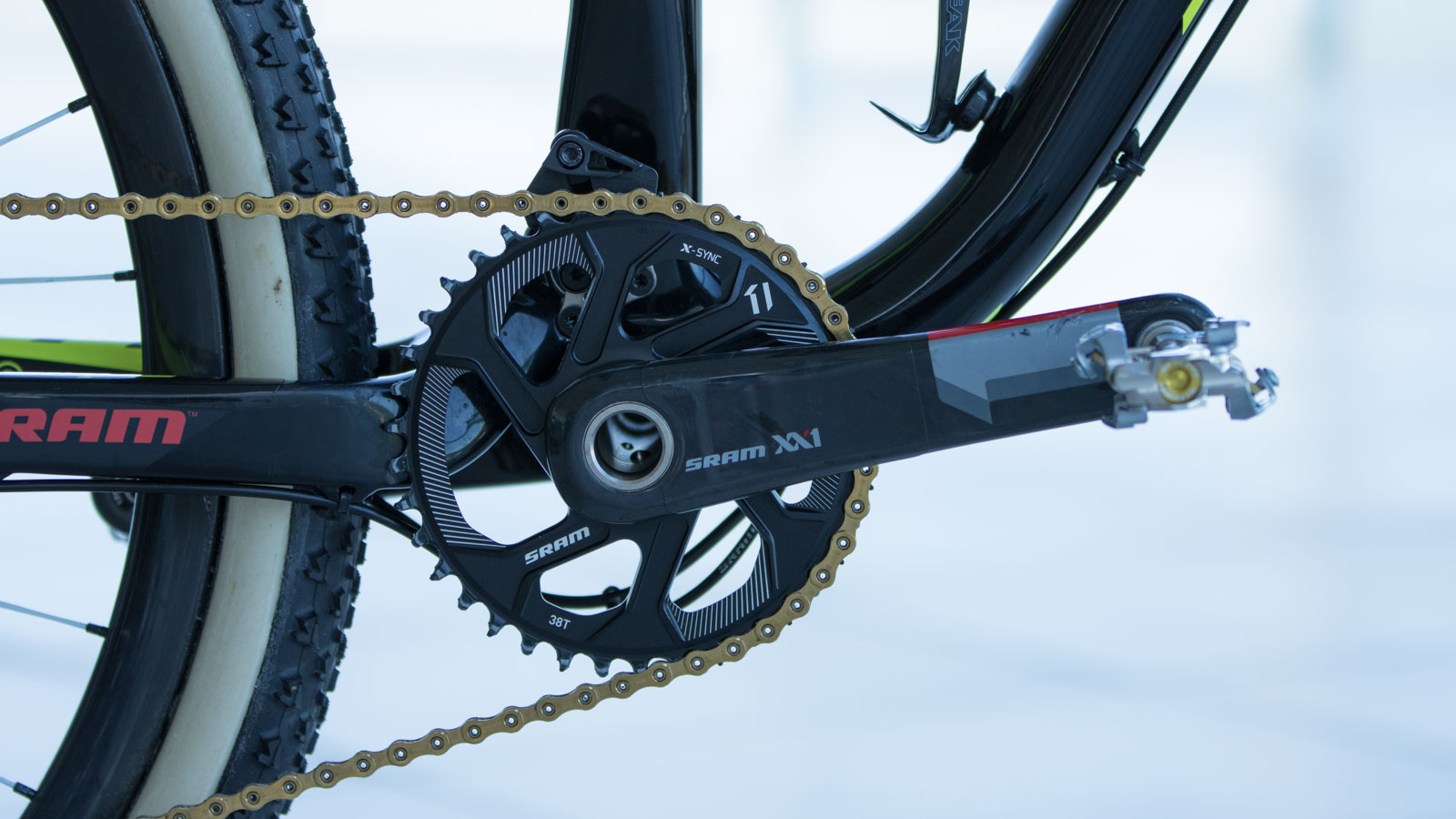
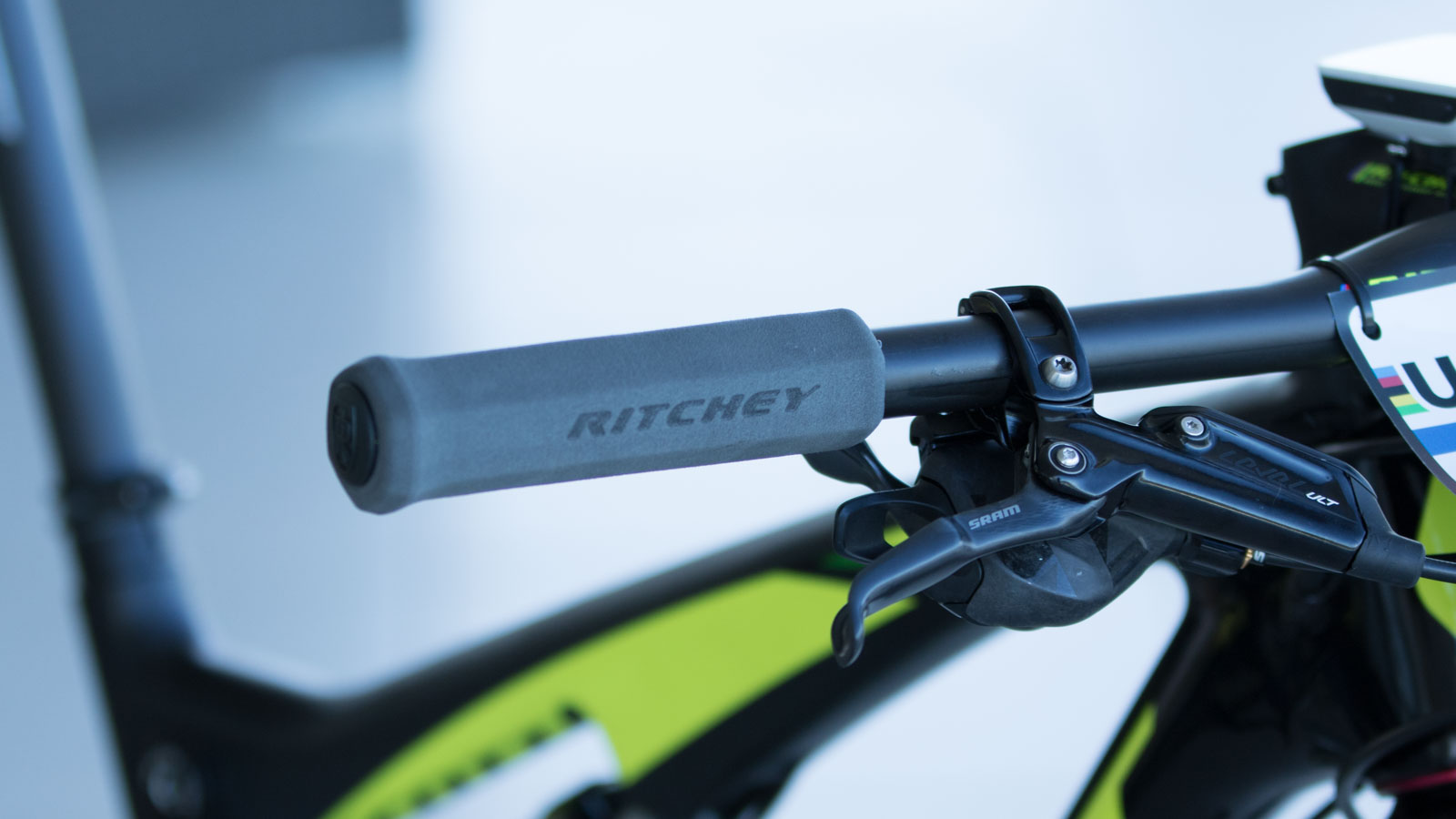
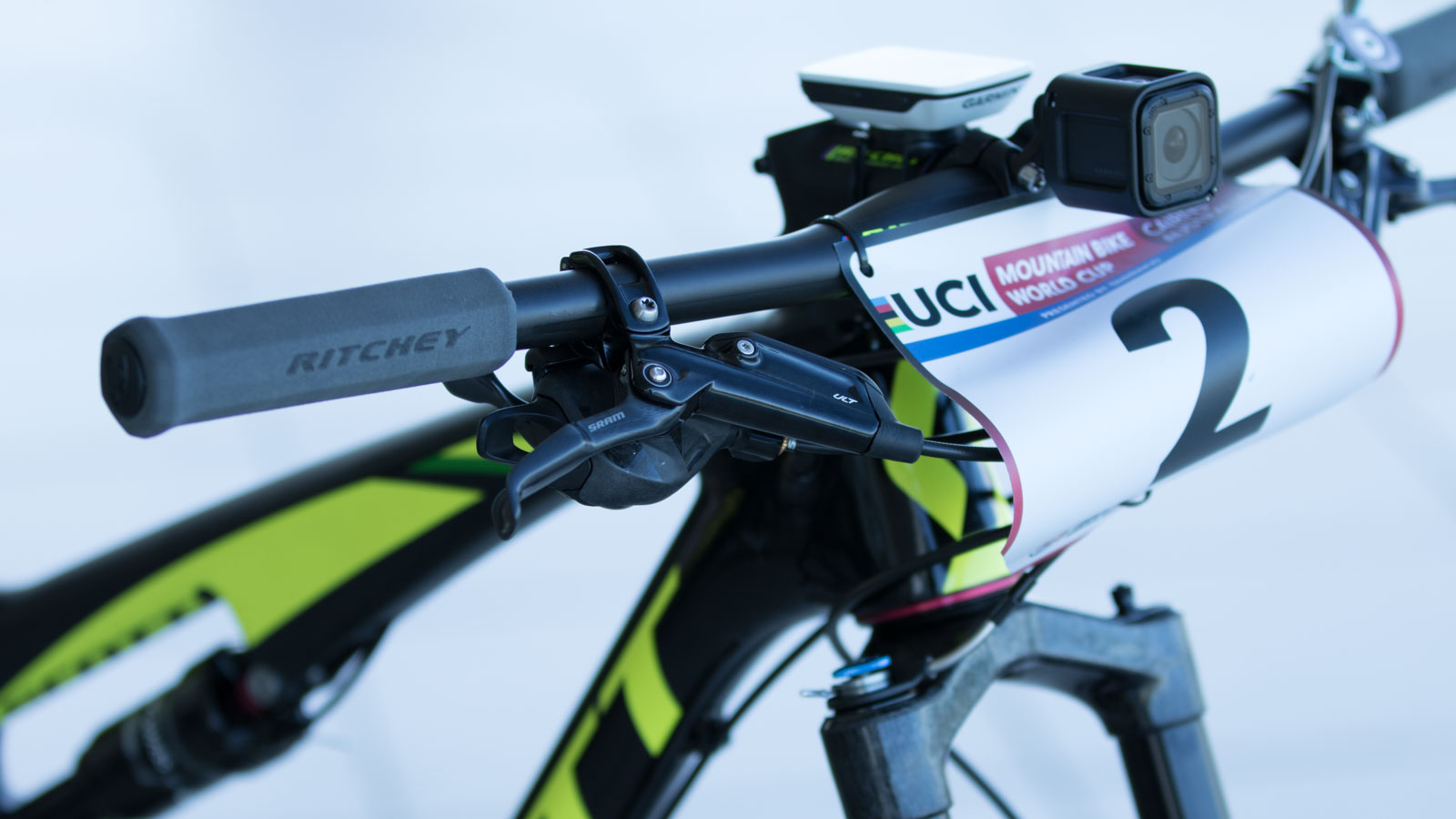
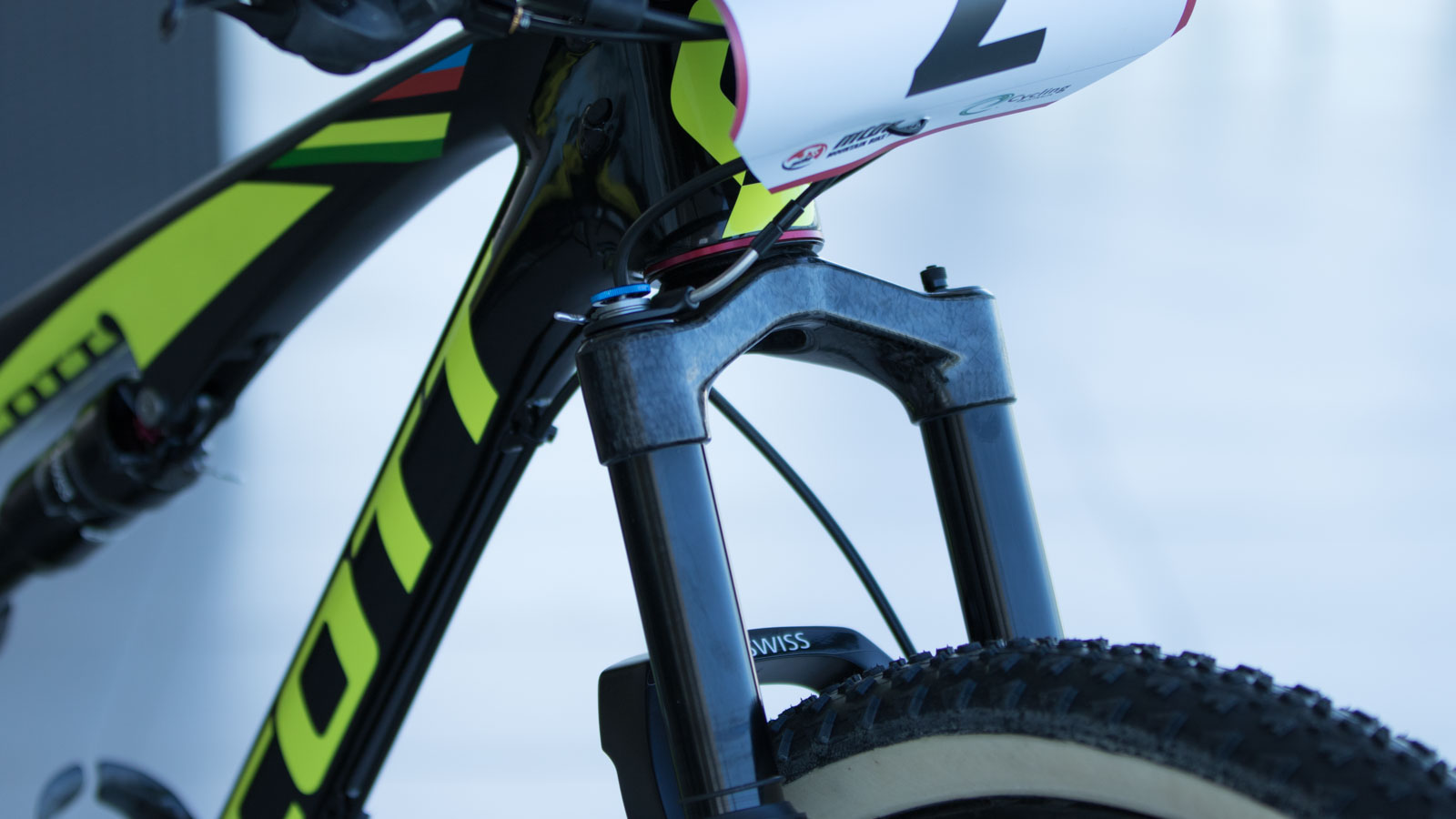
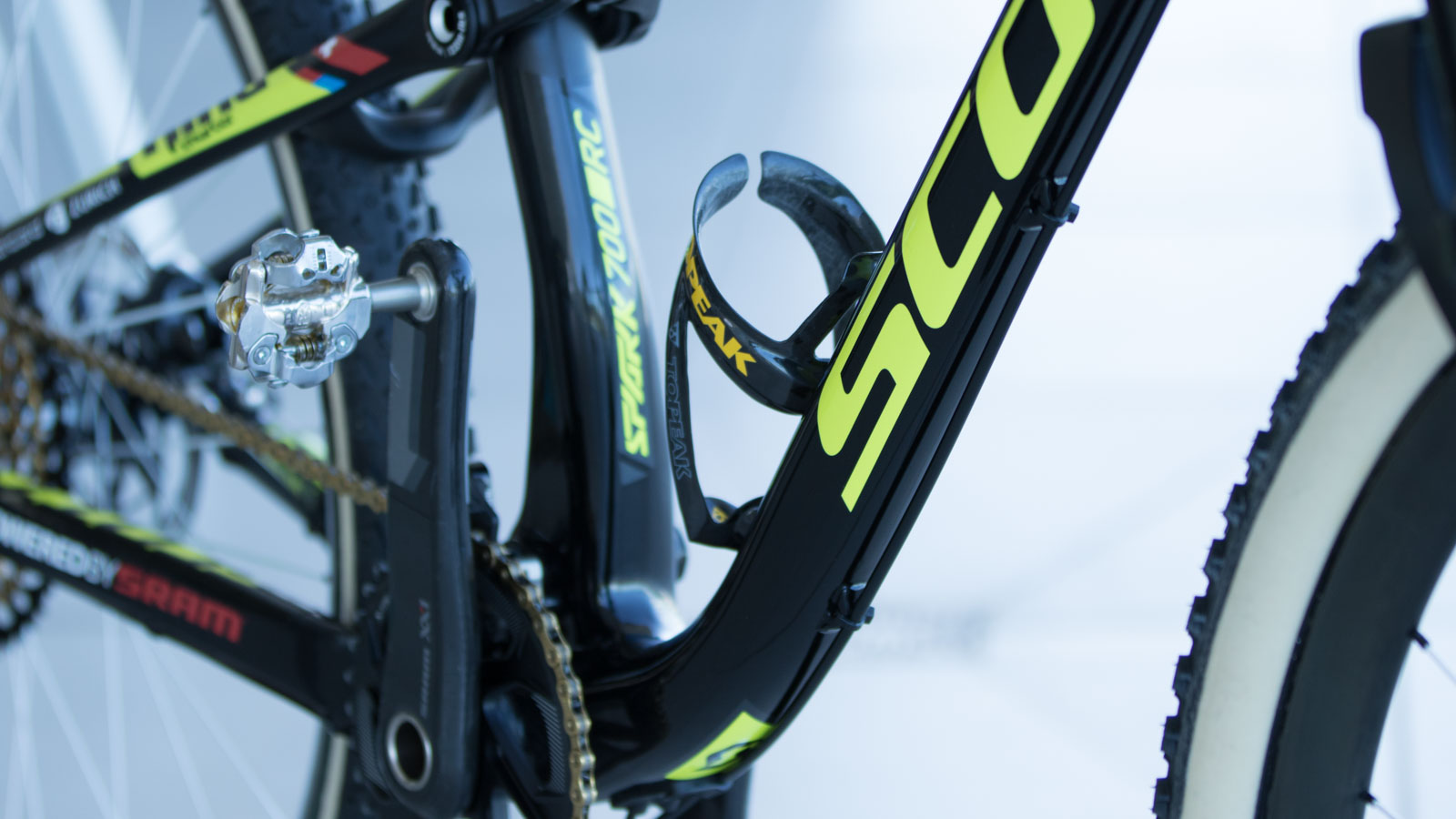
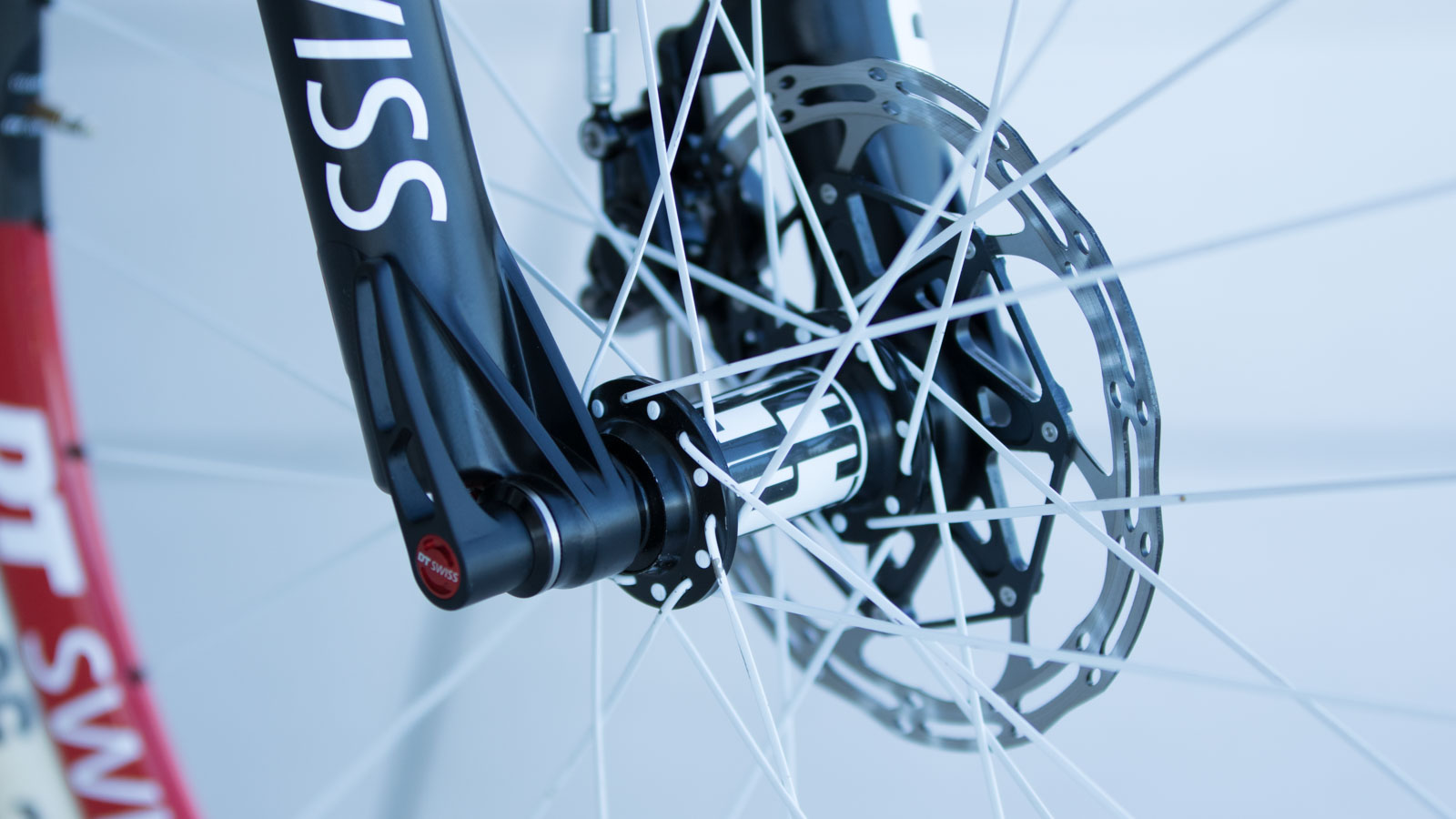
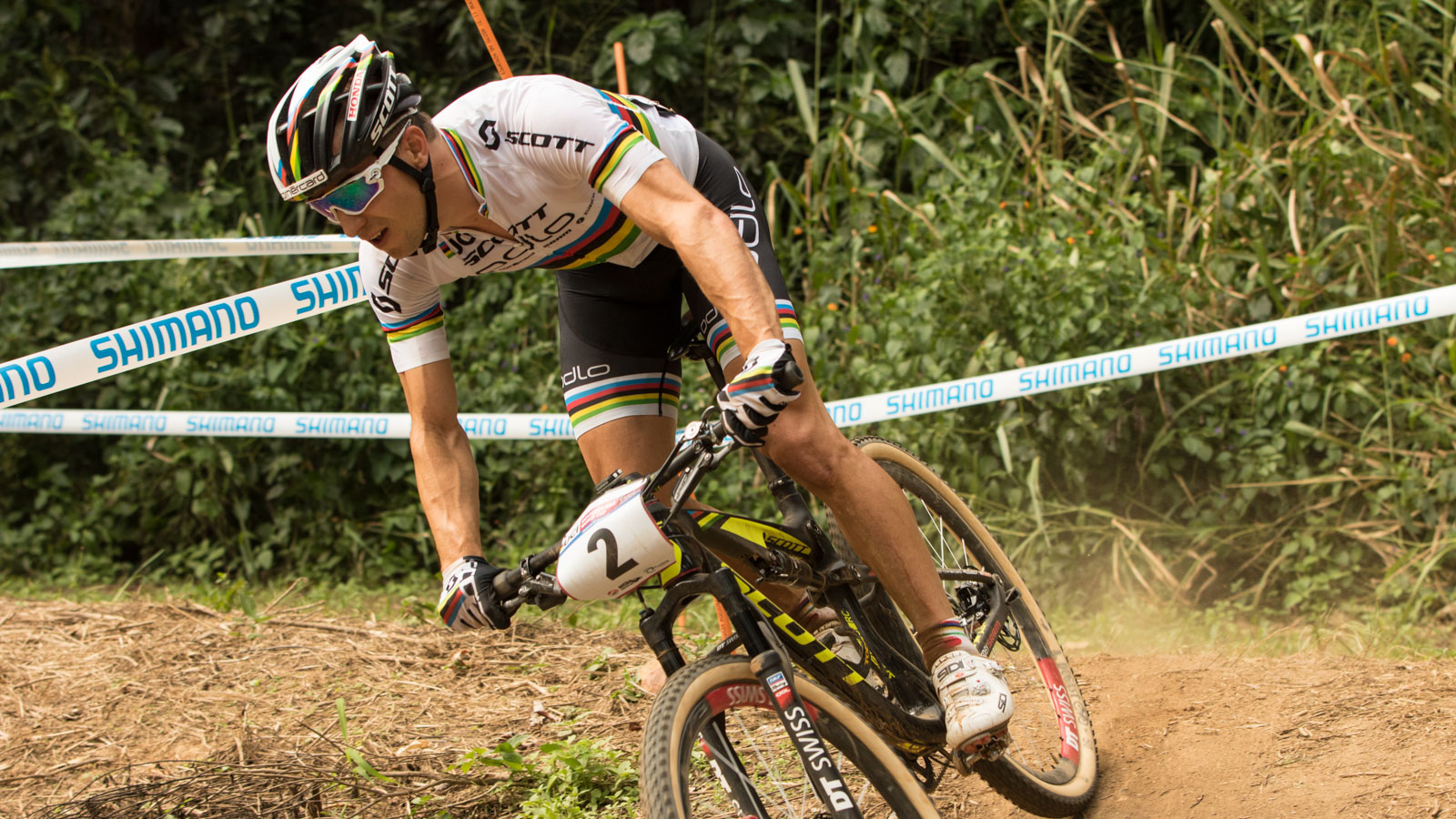
This article originally appeared on BikeRadar
As the current world champion in Olympic-discipline cross-country, Nino Schurter is always one of the race favourites once the start gun blows. With explosive power, supreme technical skills and masterfully tactical efforts, Schurter typically delivers results with the consistency of a Swiss-made watch.
Of course, a rider of this level will usually receive special attention when it comes to equipment selection and Schurter's bike is absolutely at the pinnacle of 'race day' equipment. Wanting to learn more of this setup, we manage to sit down with the four-time world champion before his win at the opening World Cup round in Cairns, and chat about his preferences for bike setup.
Attacking on a short power climb like he typically does. very few riders can hold on when this swiss powerhouse chooses to make his move: attacking on a short power climb like he typically does. very few riders can hold on when this swiss powerhouse chooses to make his move
Grab a drink, sit back and read on as we delve into the finer details of Schurter's bike setup (and don't forget to scroll through the gallery above).
Still one of the lightest
Scott Sports has a long history of creating class-leading lightweight mountain bikes. The Scale hardtail remains one of the lightest money can buy, as does the Spark RC dual suspension, which has seen little change in recent time. Schurter tells BikeRadar that the Spark will remain his key choice for much of the season, with the Scale hardtail set to make only occasional appearances.
The Spark is one bike that pushes cross-country convention. Built to win XC races, this 27.5in-wheeled version nonetheless offers a rather long 120mm of rear wheel travel. For reference, most of the direct competition sit at 90-100mm.
Get The Leadout Newsletter
The latest race content, interviews, features, reviews and expert buying guides, direct to your inbox!
Ensuring it climbs with the best, Scott employs its 'TwinLoc' technology, offering a three-position suspension control remote to switch the bike between descending (open), traction (firm) and climbing (locked) modes. Fully open, the bike sits at 120mm of travel, but switch mode and it reduces to 85mm. The front fork is linked to the same handlebar remote; switch the rear shock and the fork's compression changes to match.
In addition to the TwinLoc technology, the Spark offers a flippable chip that allows for a choice between two geometry positions. What shouldn't be too surprising is that Schurter runs his in the 'High' position for a more aggressive head angle.
The High position also raises the bottom bracket, but this likely doesn't present any issues as Schurter uses a 100mm travel fork on this frame designed for a 120mm version. That shorter fork will obviously lower the bottom bracket height, but it'll also steepen the 68.8-degree head angle closer to 69.8 degrees.
That 100mm fork is DT Swiss' latest OPM Race, an impressively lightweight item as a result of the new carbon steerer and crown. New low friction seals from SKF help to improve small bump performance.
In a slight change from last season, Schurter is using a standard, non-carbon version of the DT Swiss X313 Remote rear shock. We suspect this may be due to how the carbon air sleeve handles excessive heat from Schurter's descending, as otherwise he'd be taking the opportunity to save a few more grams here.
Helping to ensure the bike stays in the right hands, Schurter's bikes are nearly always treated with custom paint – as was the case here. It's worth noting that these graphics typically carry some 'cred', and Scott successfully sells 'Nino' replica product and bikes (including for kids) in many markets.
Bike fit is course-dependent
Bike setup, Schurter says, will change to suit the varying courses. "I adjust suspension, tyres and sometimes even my position. If there are really steep climbs, and I feel like it's not comfortable to ride my position for long climbs, then I go higher on the seat to help. My seat height will vary 2-3mm."
With a set-back measurement of just 4.7cm, Schurter rides in a relatively forward position. It's a trend that's flowing from the top of cross country lately, with positions tailored to the hard, flat-out and technical racing that the sport has become.
Schurter's choice in handlebar width is another aspect of evolving setup. For 2016, he's moved to a 710mm width bar, a far cry from the 580mm width bars of cross-country racing's past.
"I went wider recently for cross country," he says. "On my other bikes I always have wide bars. Now the downhills are more technical and I prefer more control. You don't win races on downhills, but you sure can lose them."
Tubular-wrapped mid-size wheels
Schurter's move to a 27.5in wheel, among a 29er crowd, was met with much interest a few seasons ago. At the time, Scott already had a full quiver of World Cup-grade 29ers, but it was said that Schurter was unable to achieve the handlebar height he desired without greatly compromising handling.
As a longtime user of tubular tyres, Schurter's wheel and tyre choices sit in the pro-only realms. Sure, at €103 a piece you can buy the 50mm width (approx. 2.1in) Dugast tyres he ran in Cairns, but his DT Swiss 27.5in carbon tubular wheels aren't something you'll find as easily.
Glued to the carbon rim, tubular tyres offer some significant benefits for those who have a mechanic to do the work. For one, the system is seriously light at the rim, right where it counts. Low pressures can be ridden without risk of burping or rolling the tyre from the rim. Rolling resistance is potentially lower by allowing for a suppler tyre construction. Finally, if a flat does occur, the tyre will stay in place for the rider to get to the nearest service zone.
However, obvious costs and mechanic hours aside, transporting pre-glued wheels and tyres present logistical issues. Schurter believes five different tyre types were brought across to Cairns from Europe for him. However, his Swiss-based team surely has access to far more options on its home continent.
Prior to travelling, the riders have a pretty good idea of the terrain ahead and so can limit their choices without having to bring everything. In Schurter's case, he says, beyond the obvious tread changes even the construction of the tubular can vary, with more protection being built into it to suit the conditions.
So why not just run a more protected tyre all the time? Weight and rolling resistance come back into play.
SRAM soars
Schurter was the only rider with SRAM's new 12-speed XX1 Eagle drivetrain at this opening World Cup round – and it was impossible to miss in its gold livery. Offering an enormous 500% range, the new drivetrain is surely the future of single-ring setups.
"I've already raced it before Cairns," says Schurter, before we ask about chainring size to match the enormous 10-50t cassette. "I'm on a 38t," he replies. "I don't think I'll ever go down in size for the rest of the season – I may go up to a 40t, but for slow courses I use a 38. For a stage race if it's really long or steep climbs, then maybe I'll use a 36t. But 38t is about the smallest you (pros) need for XC."
Clearly the gearing setup is extremely fresh as the matching crankset was not in place. Sitting above the crankset, Schurter continues to use a minimalist chain guide that simply stops the chain from lifting off the top of the ring.
Equally as new as the Eagle gearing, Schurter is using SRAM's latest flagship hydraulic disc brake – the Level Ultimate. Like every new top-tier product, these are the lightest and highest-performing the brand has offered yet. Including hardware and rotors, a pair of these is claimed to weigh just 636g without any compromise to braking function.
New Ritchey bits
As a longtime rider of Ritchey equipment, Schurter showcases both proven and fresh components on his bike. On the fresh side, Schurter is running the new Superlogic foam grips and WCS XC clipless pedals.
The Superlogic grips appear to have a simpler profile to the ‘Ergo' version we've seen launched. Regardless, they look to be made of the same ‘nano foam' as the Ergos and therefore likely weigh less than 9g per pair!
The pedals are something Schurter rode for much of last season, but in a prototype form. For 2016, they were officially released and the SPD-compatible design jumped up in weight to a claimed 298g for the pair. These are only marginally lighter than Shimano's best offering, but by the looks of it offer improved mud clearance. It's possible Schurter's pedals run on lighter titanium axles, but that's just our speculation.
Certainly not a common occurence on a race bike of this level, all of Schurter's contact points are taken care of by this one Swiss-based brand.
Dropper for Nino?
With the likes of Julien Absalon and Dan McConnell taking to dropper seatposts for the rocky Cairns course, we ask Schurter for his thoughts.
"I'm truly happy without a dropper seatpost for this course," the Swiss powerhouse says.
"All the dropper posts you get are too heavy or just not for cross country," he goes on. "I'm sure the future will have these, but they're (currently) too slow, too long and you need to put your body weight on them. For real cross country they must be faster, lighter, easier and shorter."
Race-day gadgets
Both Garmin and GoPro sponsor Schurter, and so he races while capturing both race data and footage.
His Garmin Edge 520 head unit sits directly on the stem with a standard rubber band mount. However, it's the GoPro Hero 4 Session that sits on an integrated mount that bolts in with the Ritchey stem faceplate.
With permission from racing legend and Scott-Odlo MTB Racing team manager Thomas Frischknecht, we hang Nino's race bike on our own scales – it reads 9.79kg. Making this figure all the more impressive, this includes the Garmin Edge 520 and GoPro Hero 4 Session camera as pictured.
Complete bike specifications
Frame: Scott Spark 700 RC, size Medium
Rear shock: DT Swiss X313 Remote
Fork: DT Swiss OPM O.D.L 100 Race
Headset: Ritchey Superlogic
Stem: Ritchey WCS C220, 90mm, -17 degree
Handlebar: Ritchey WCS Superlogic, 710 width, -5mm rise,
Grips: Ritchey Superlogic foam
Front brake: SRAM Level Ultimate, 160mm 2-piece CLX rotor
Rear brake: SRAM Level Ultimate, 160mm 2-piece CLX rotor
Rear derailleur: SRAM XX1 Eagle
Shift levers: SRAM XX1 Eagle
Cassette: SRAM XX1 Eagle XG-1299, 10-50T, 12-speed
Chain: SRAM XX1 Eagle, 12-speed
Crankset: SRAM XX1, 38T Direct Mount ring, 175mm
Bottom bracket: SRAM GXP Blackbox
Pedals: Ritchey WCS XC
Front wheel: DT Swiss XRC tubular (team only)
Rear wheel: DT Swiss XRC tubular (team only)
Front tyre: Dugast Fast Bird 50mm tubular
Rear tyre: Dugast Fast Bird 50mm tubular
Saddle: Ritchey WCS Carbon Stream
Seatpost: Ritchey WCS carbon, 1-bolt, zero set-back
Bottle cages: Topeak Shuffle CF
Other accessories: Garmin Edge 520, GoPro Hero 4 Session
Critical measurements
Rider's height: 1.73m (5ft 8in)
Rider's weight: 68kg (150lb)
Saddle height from BB, c-t: 715mm
Saddle setback: 47mm
Seat tube length (c-t): 440mm
Head tube length: 110mm
Top tube length (effective): 598mm
Weight: 9.79kg (21.58lb)